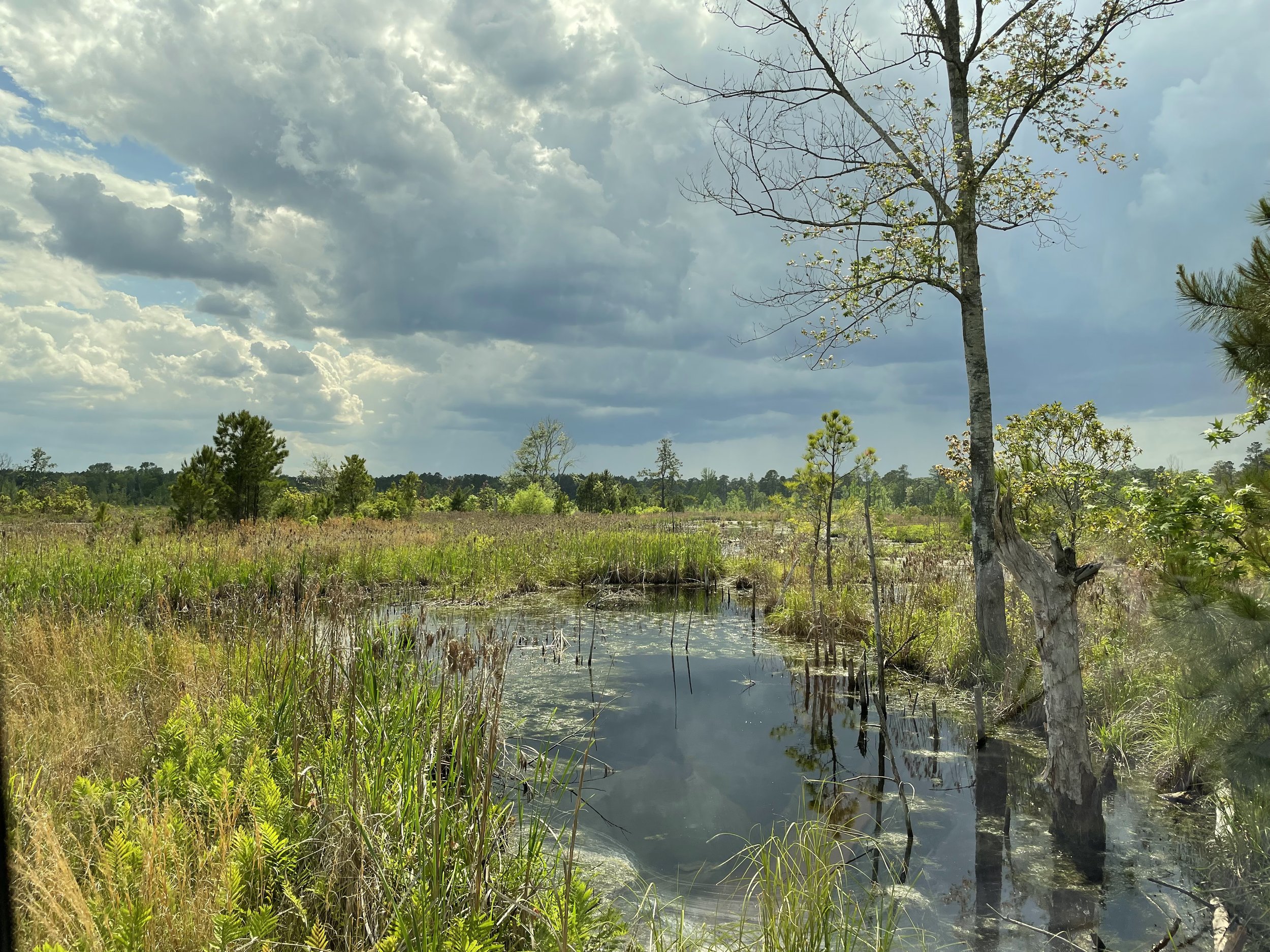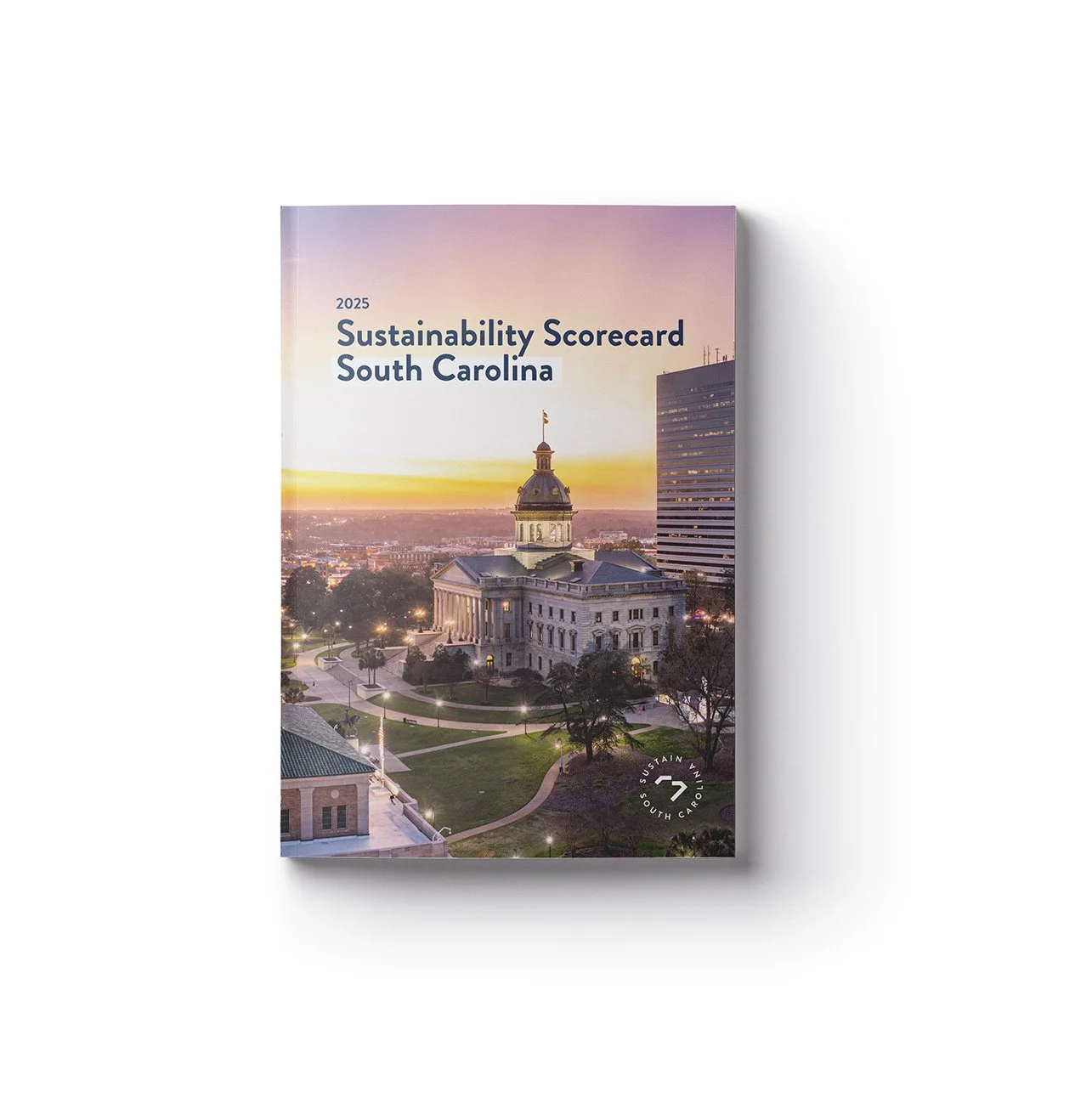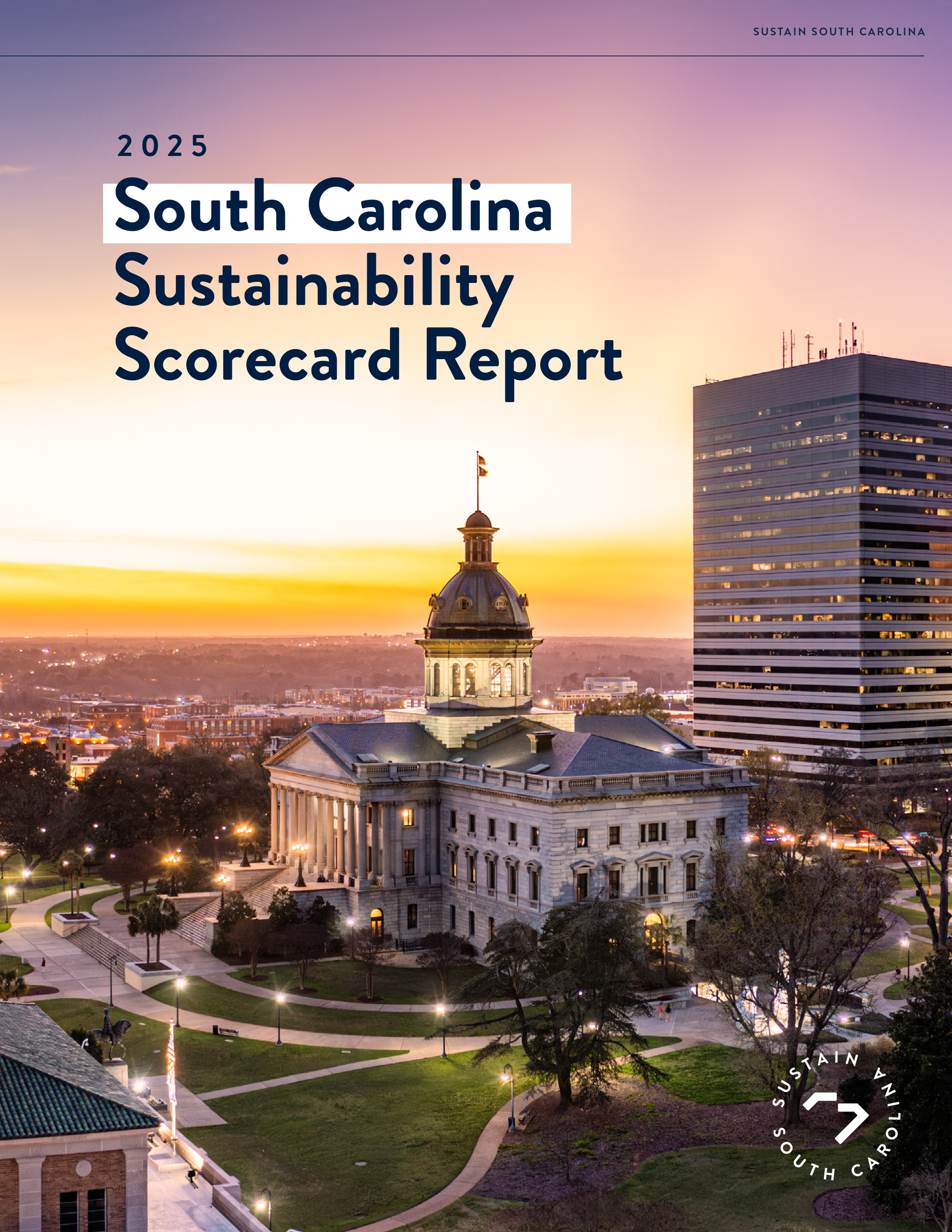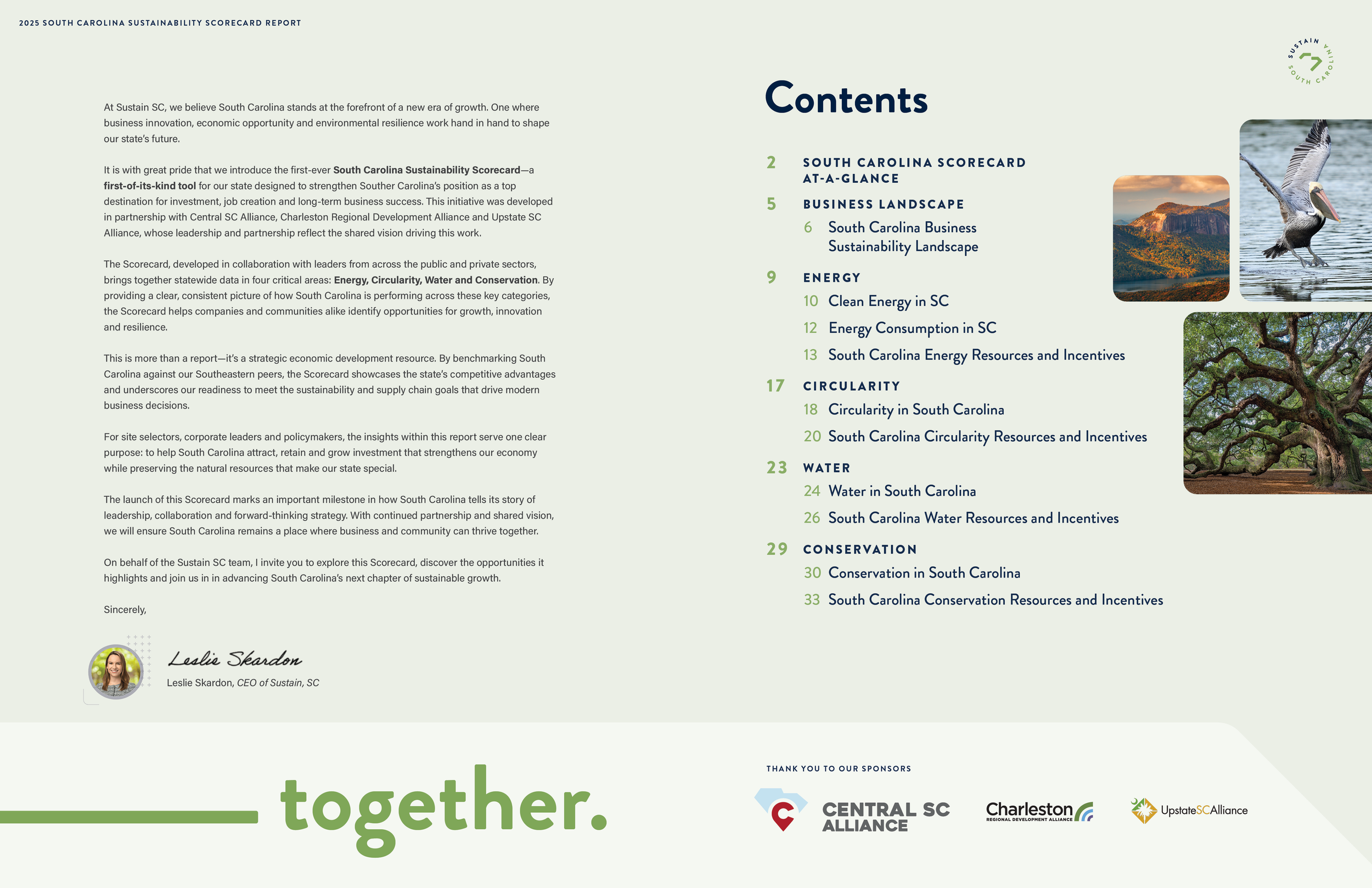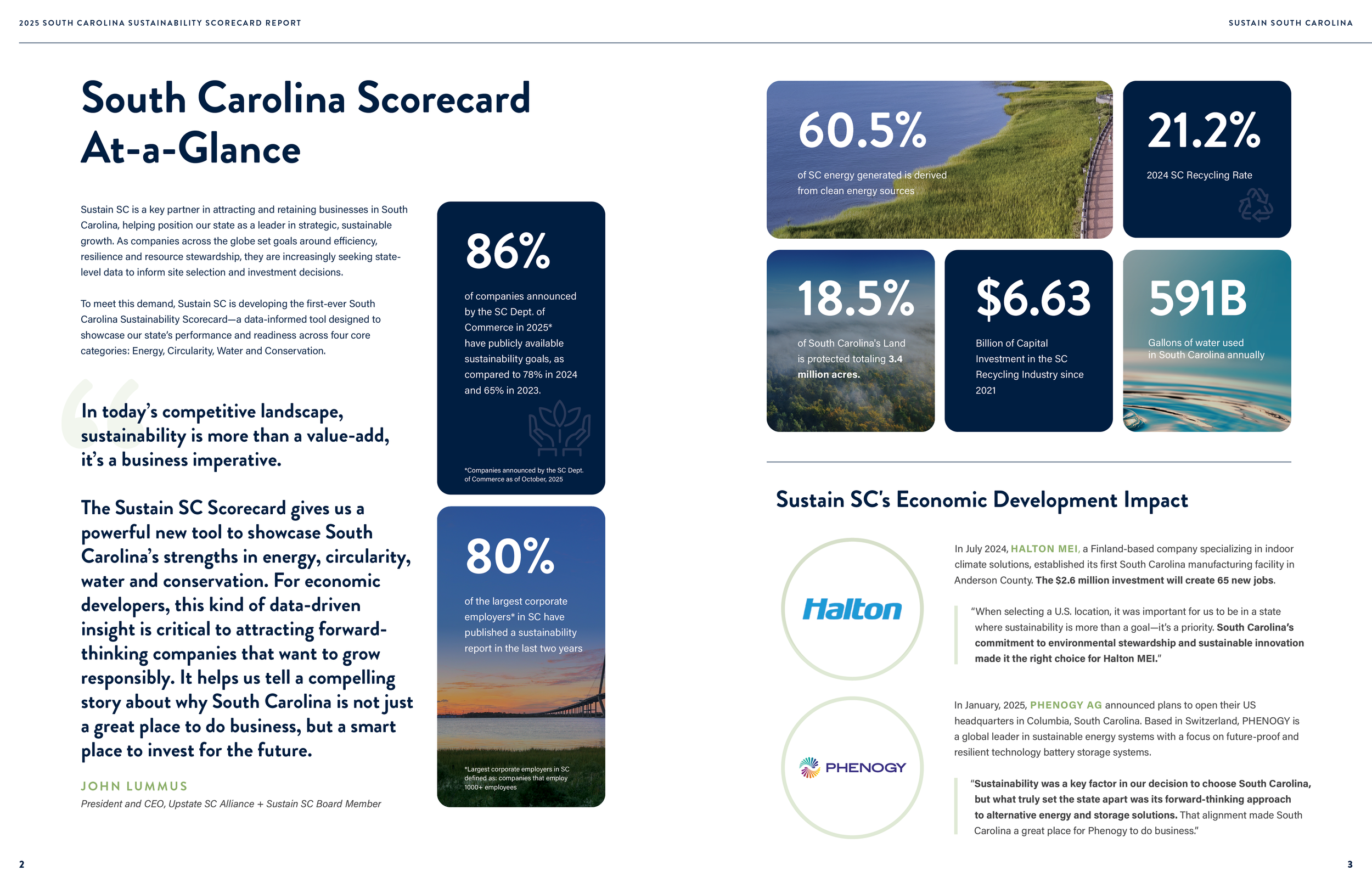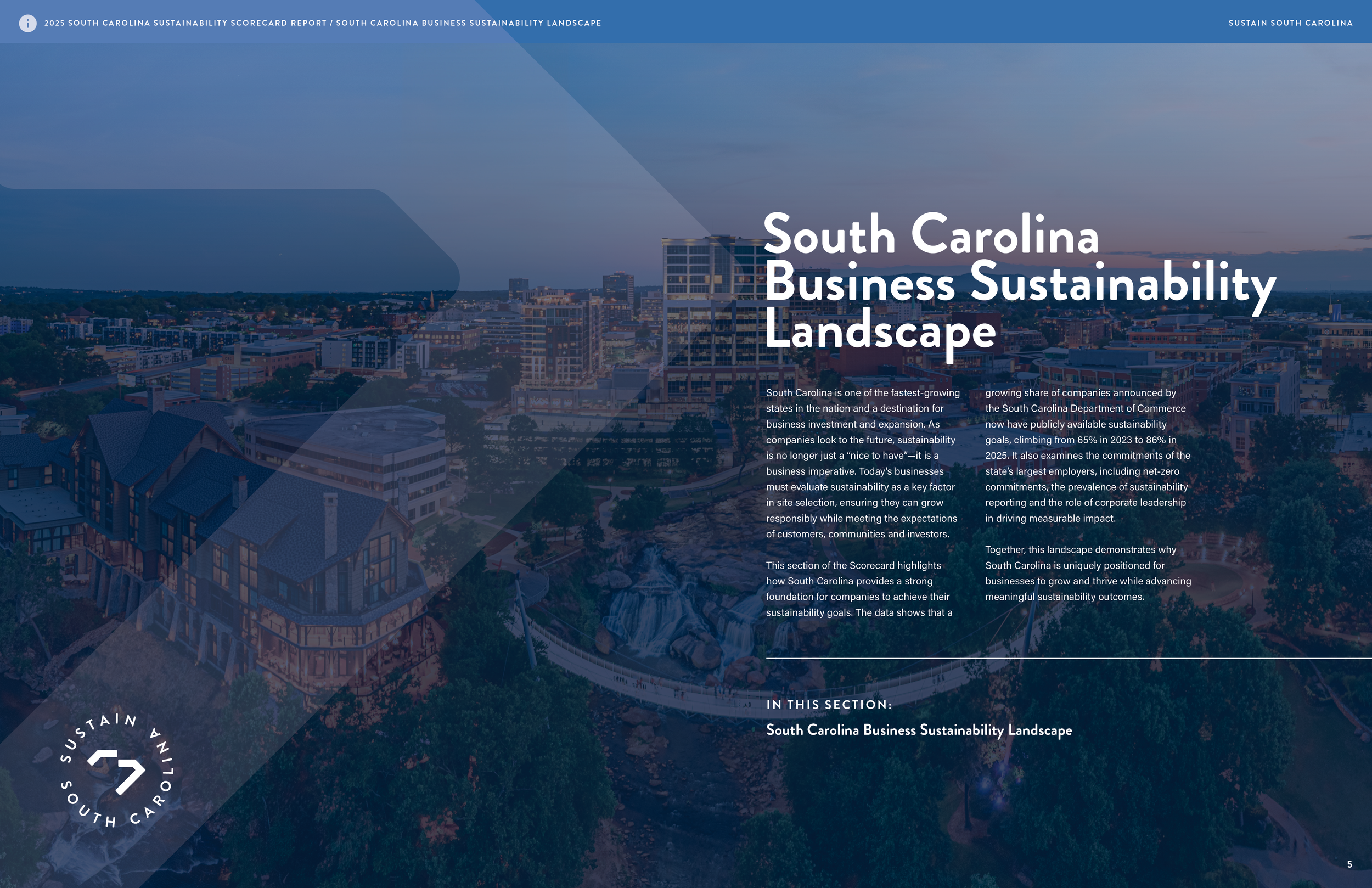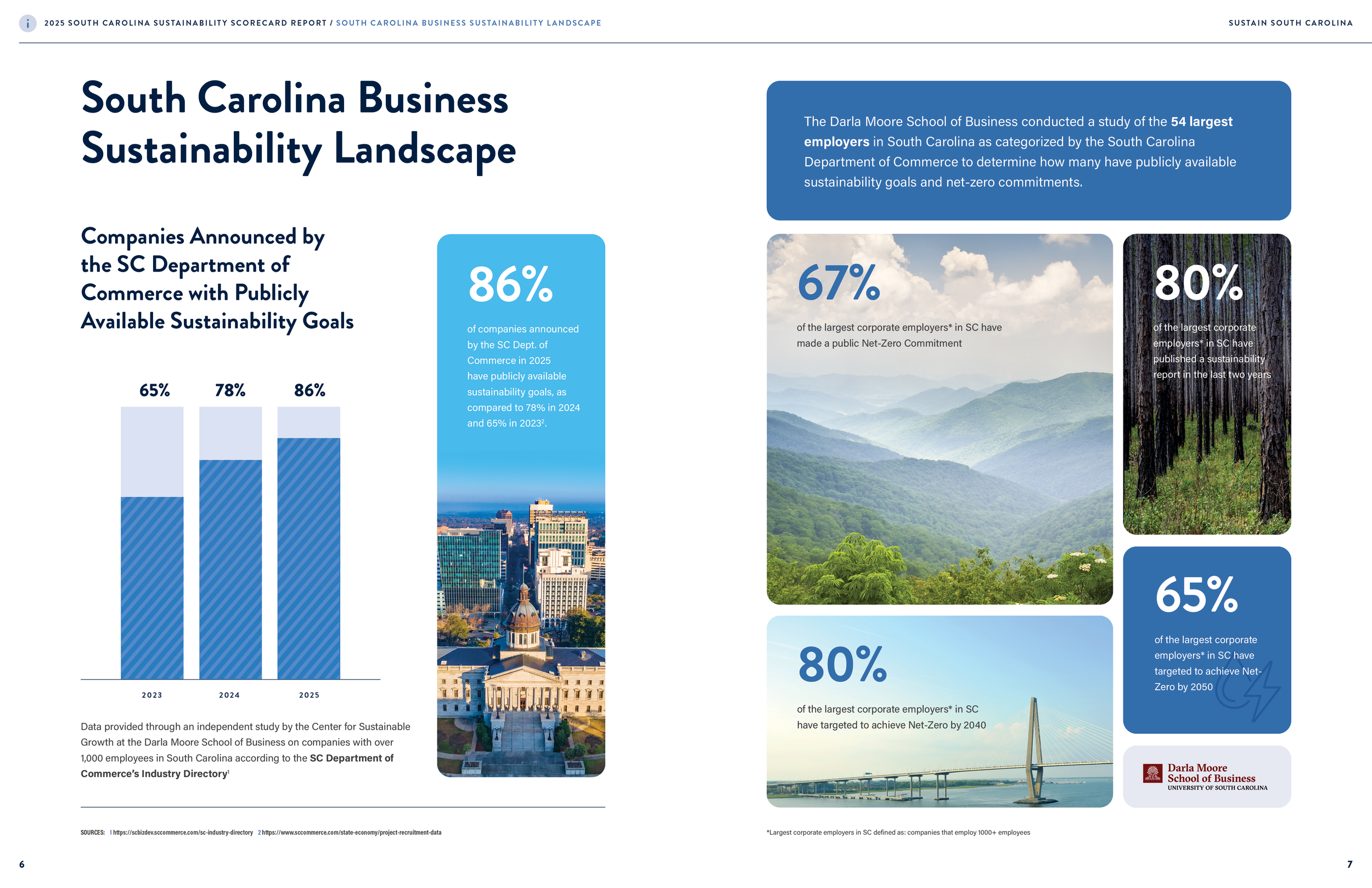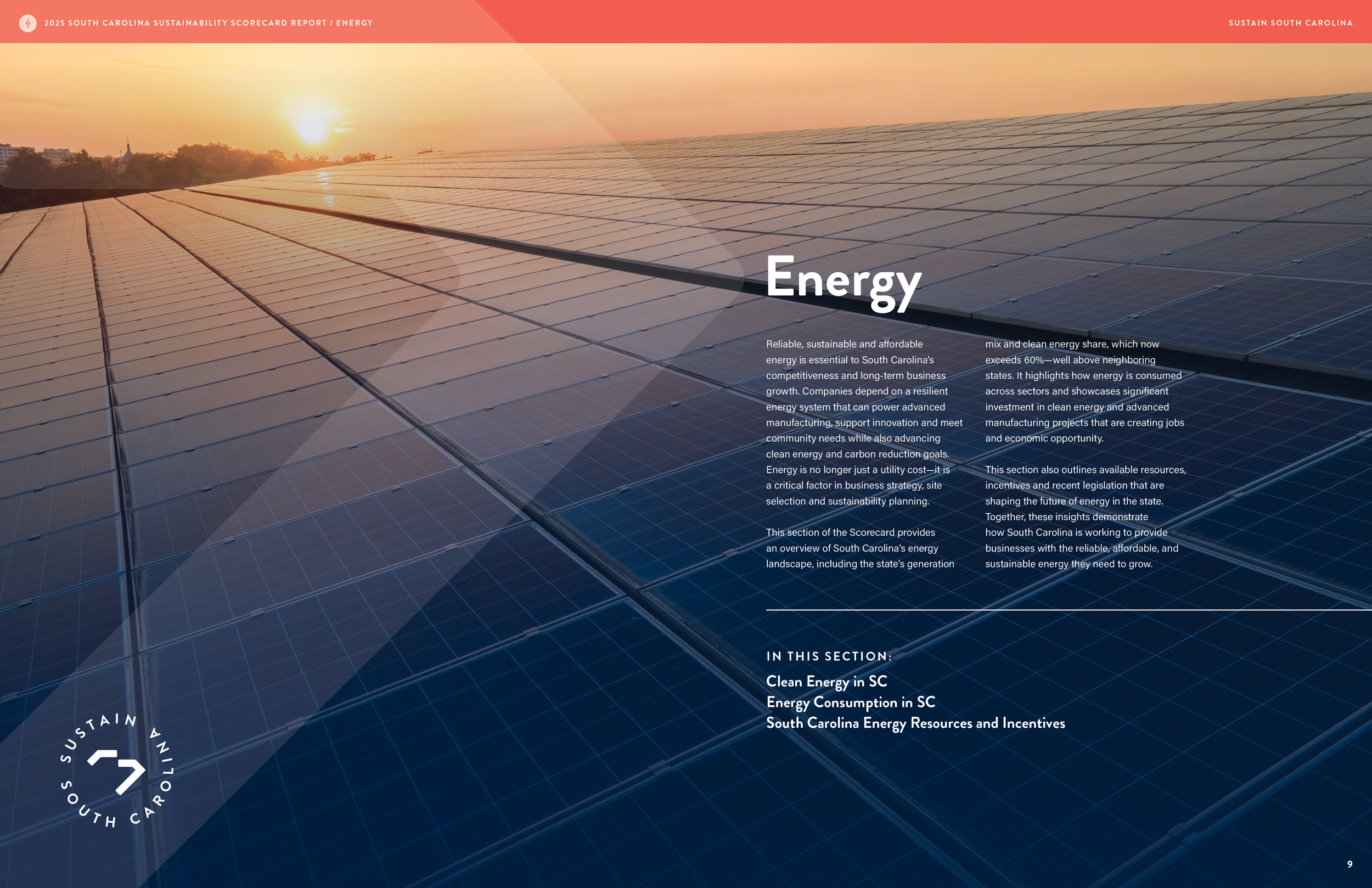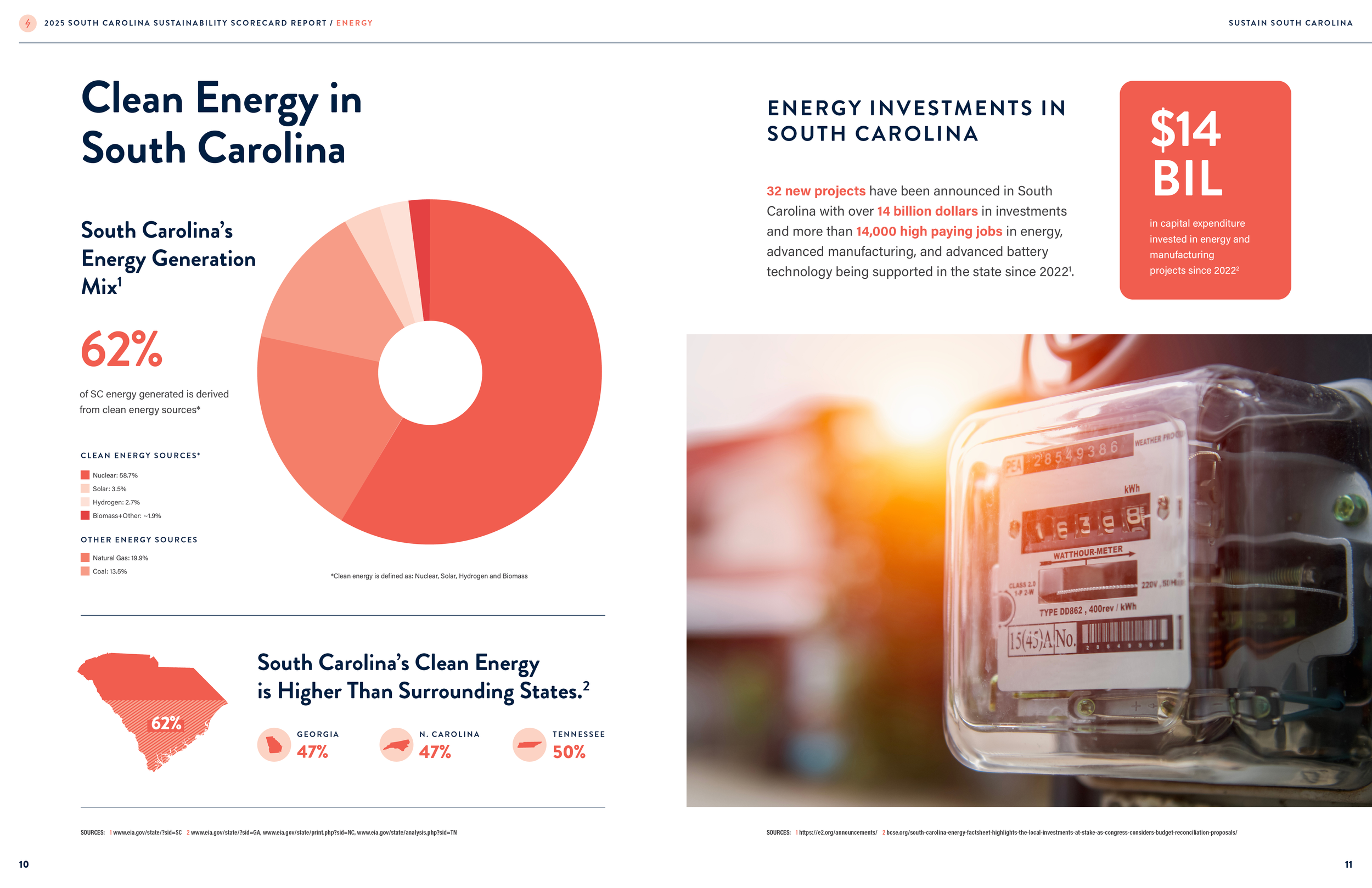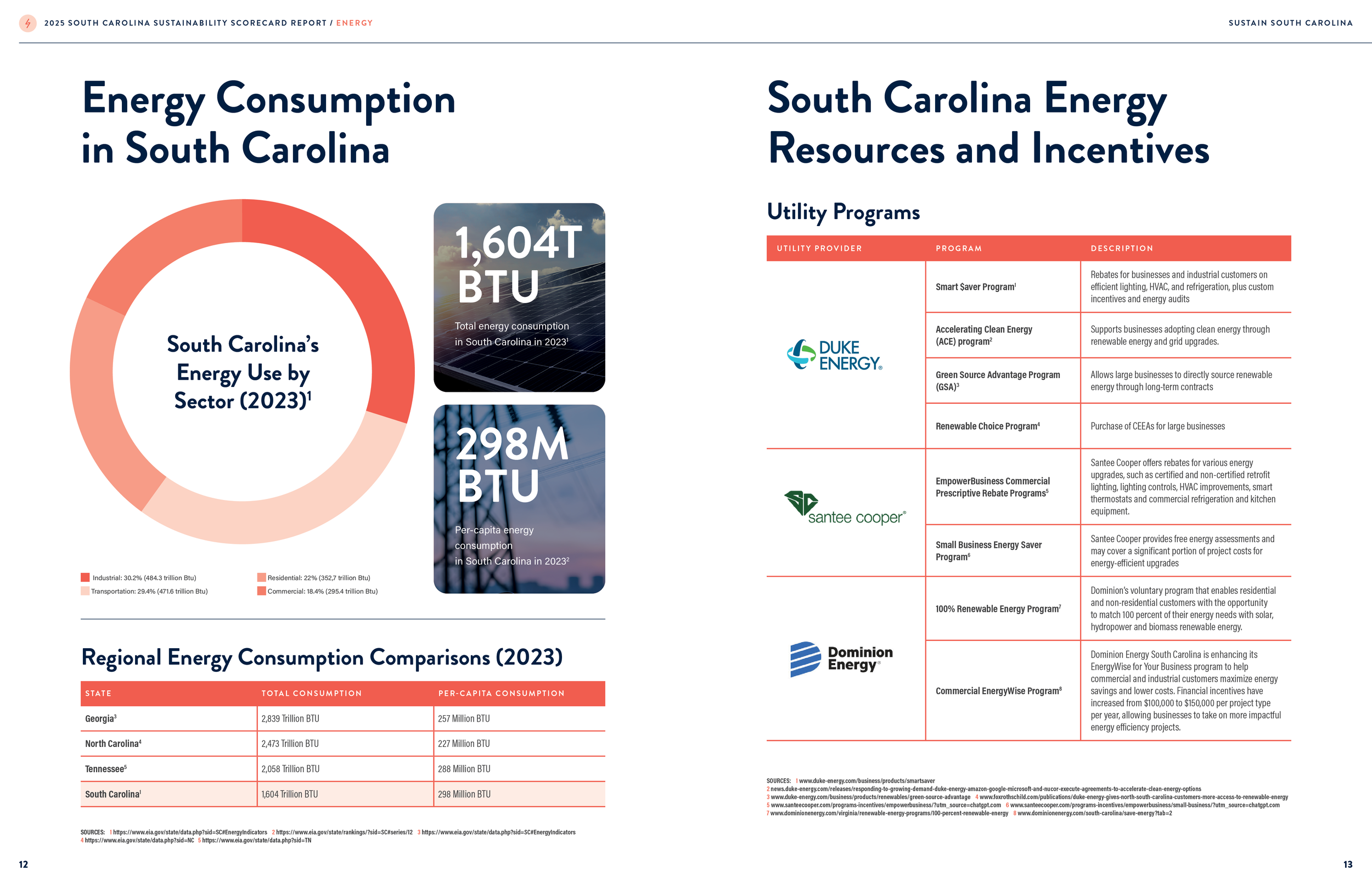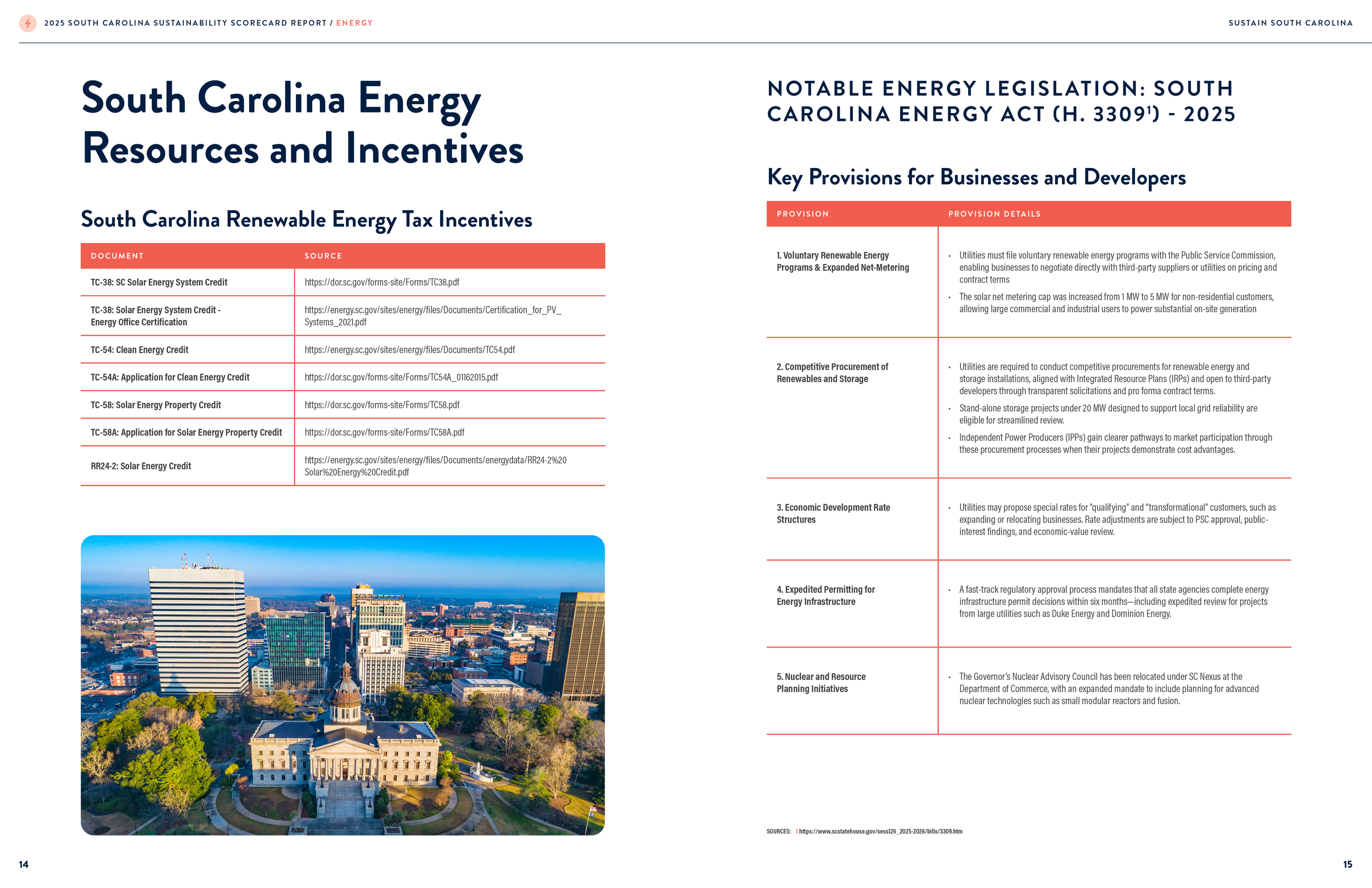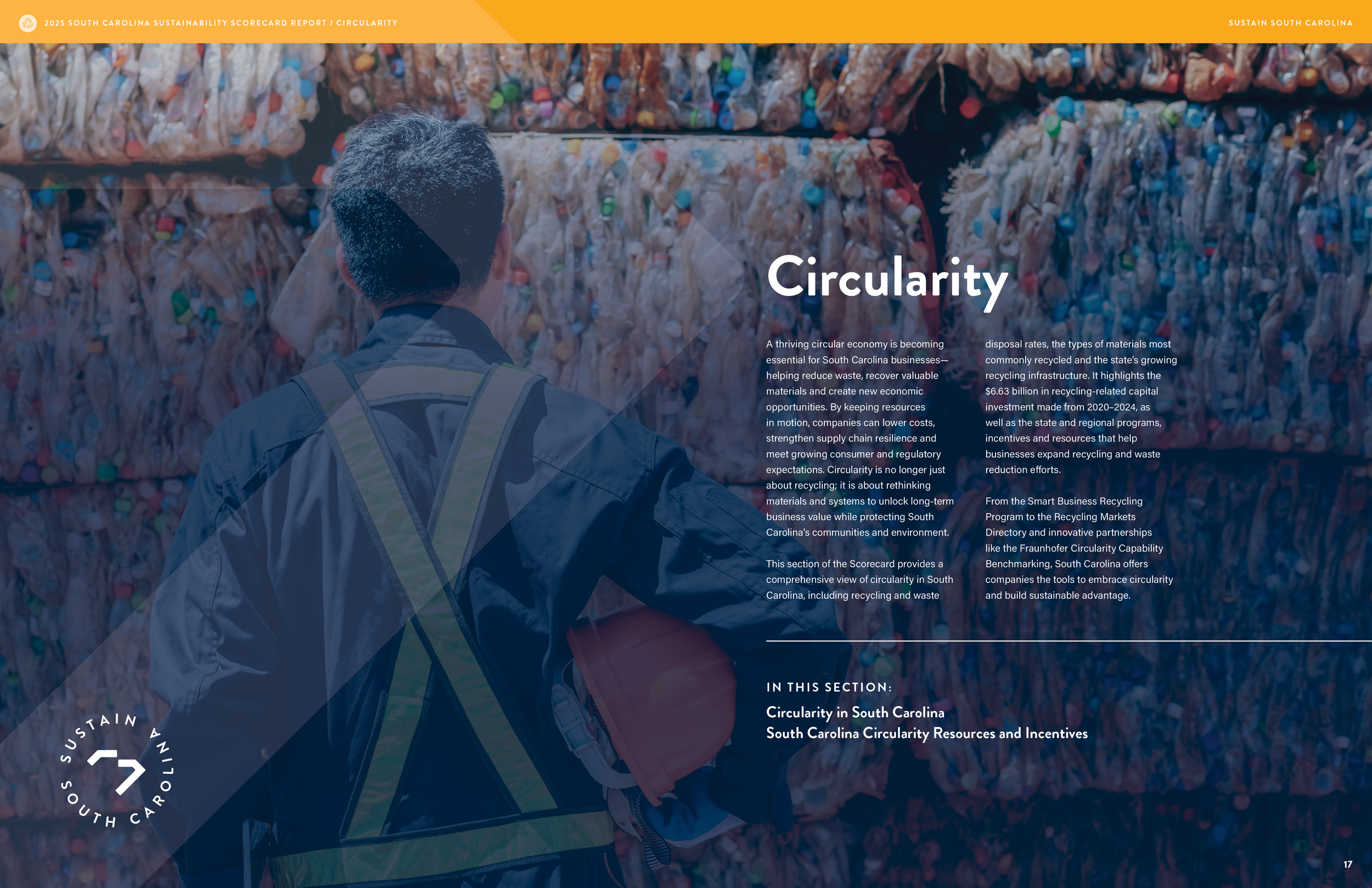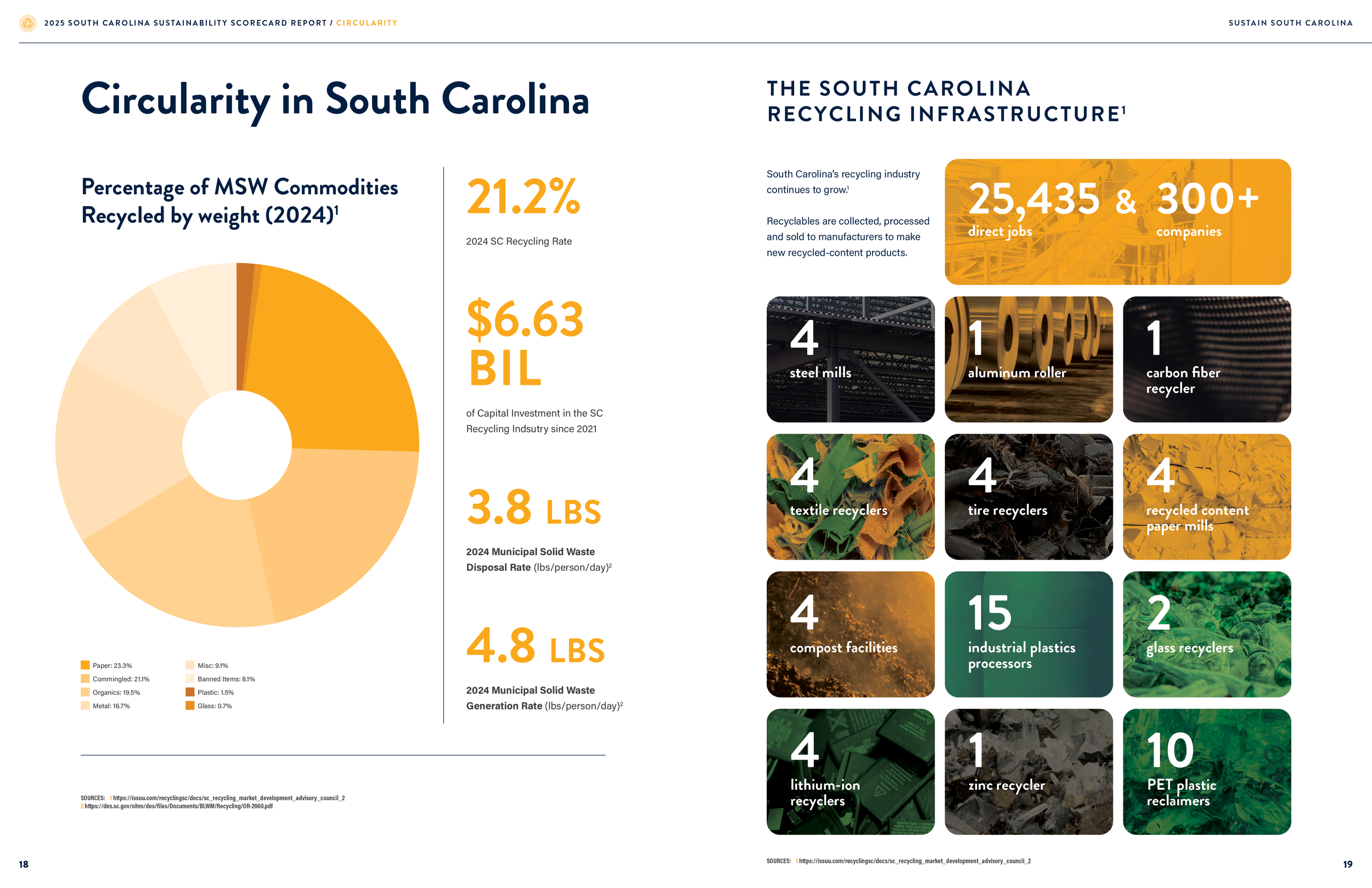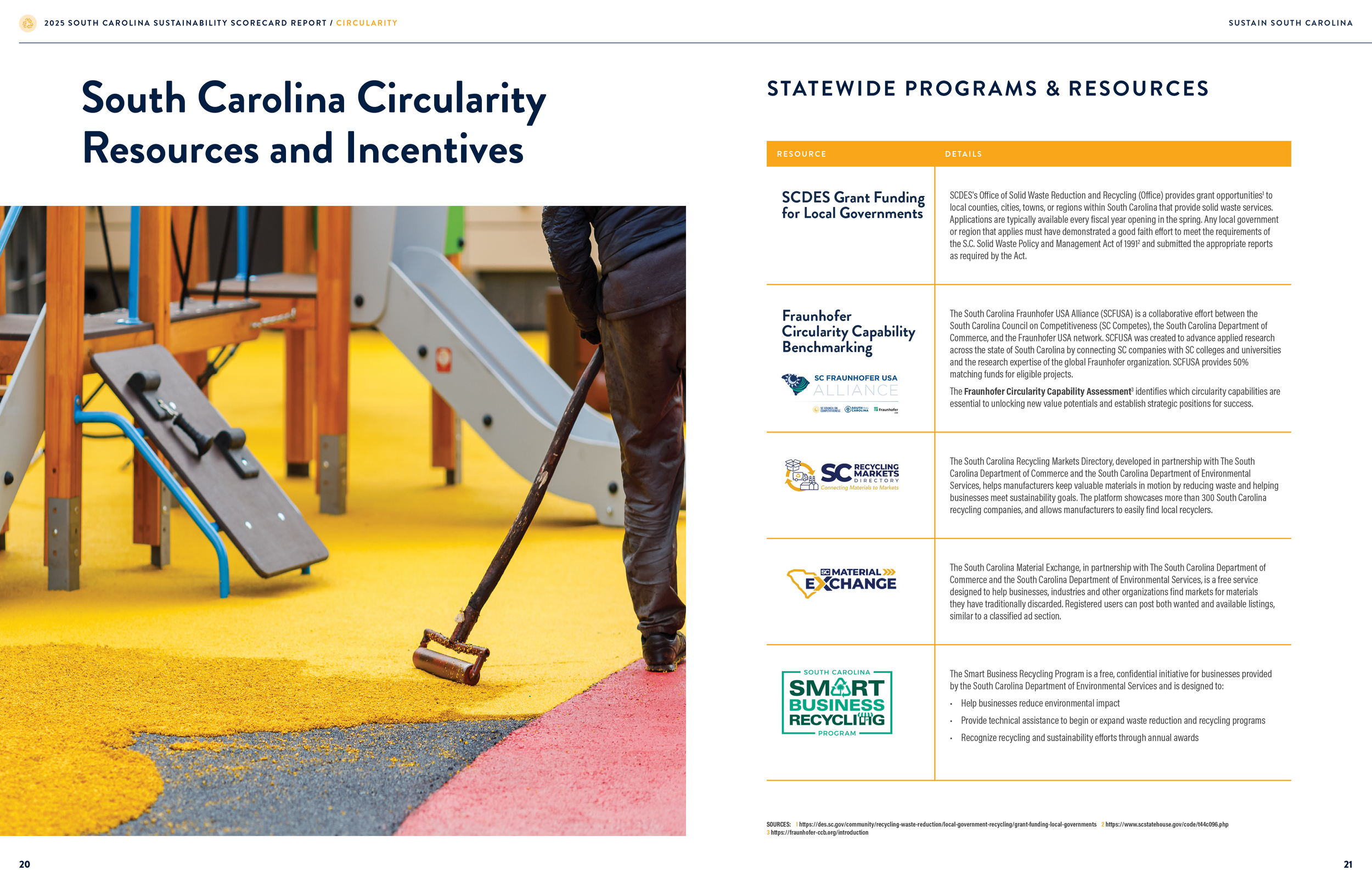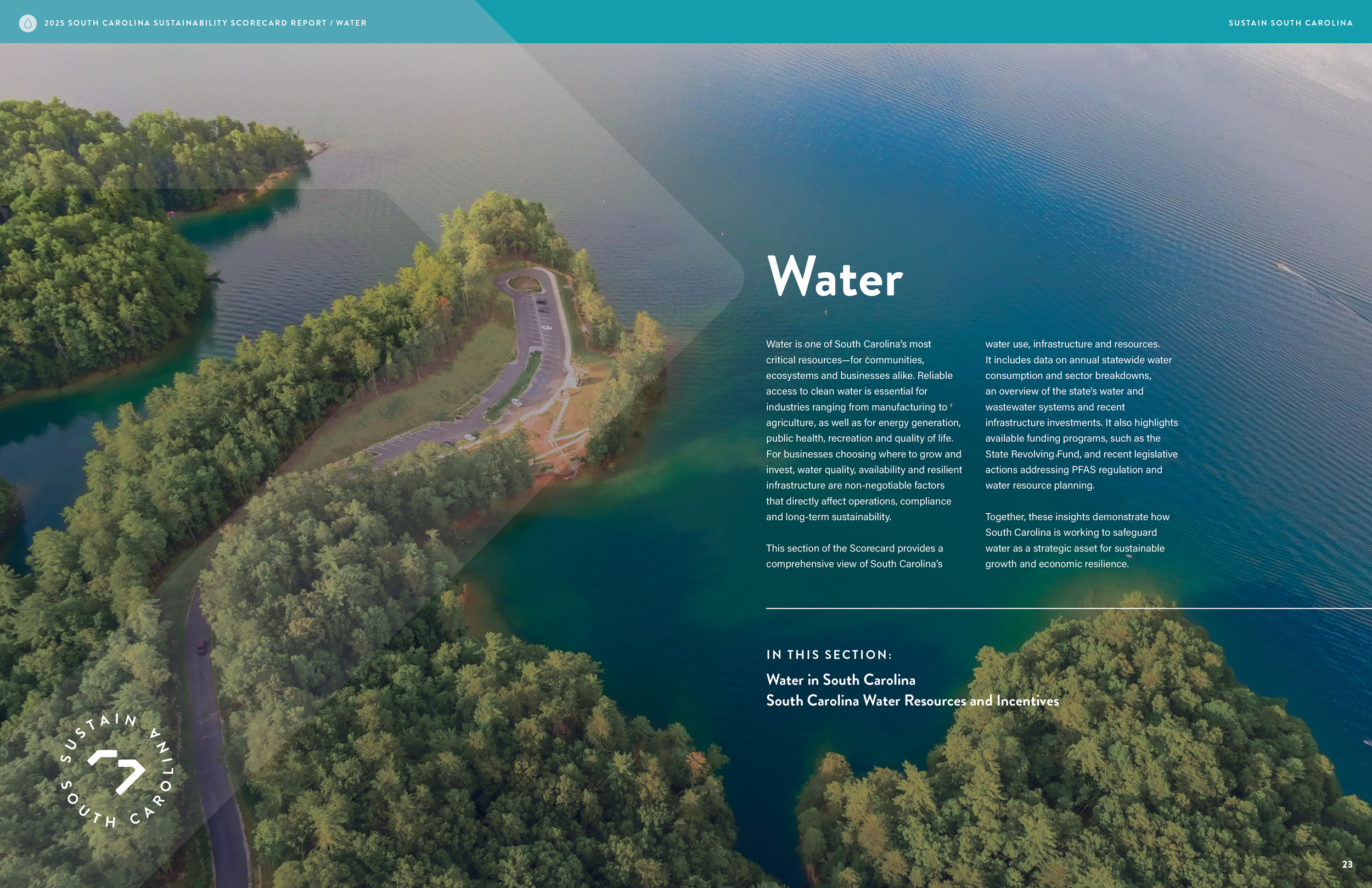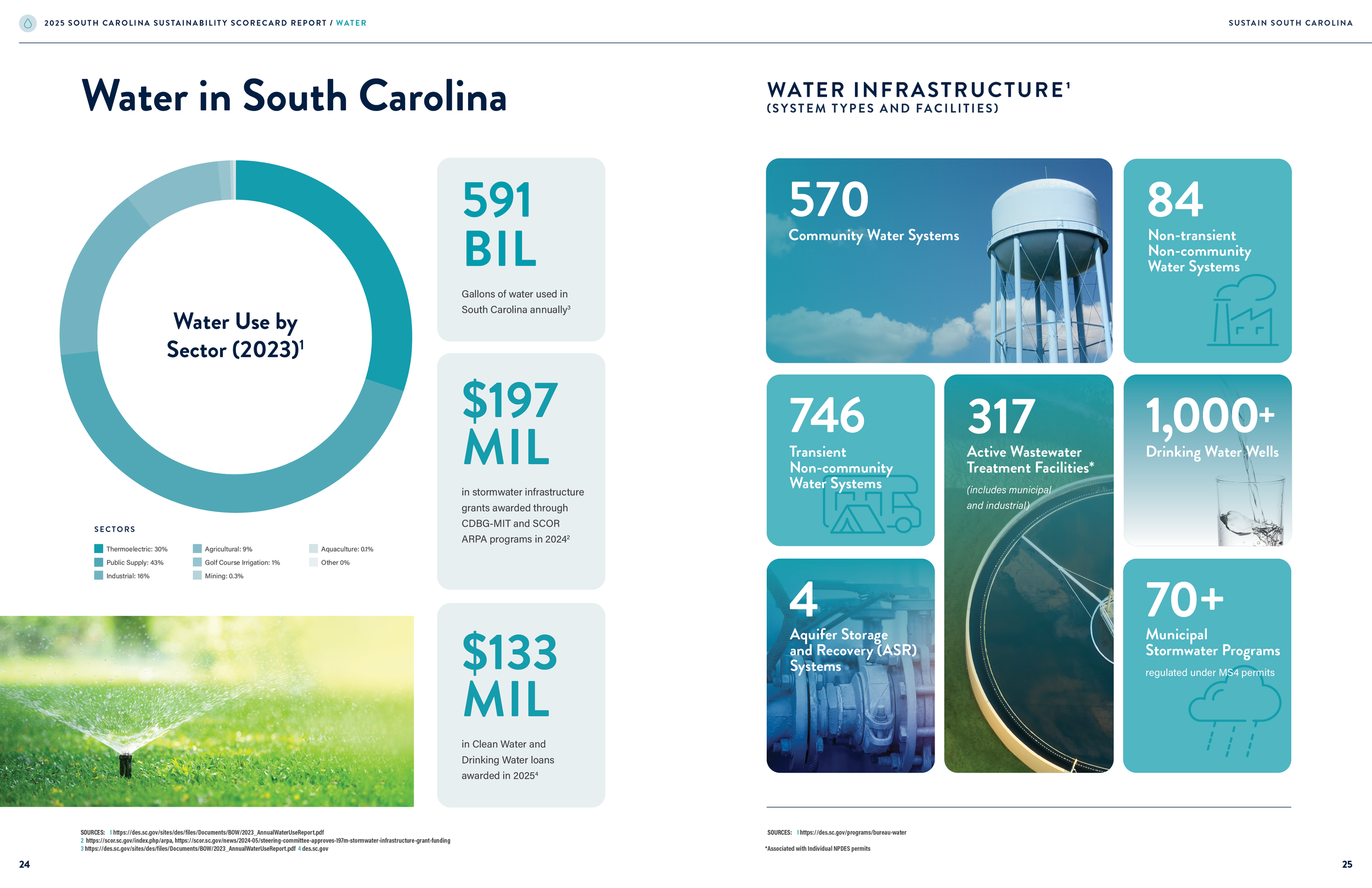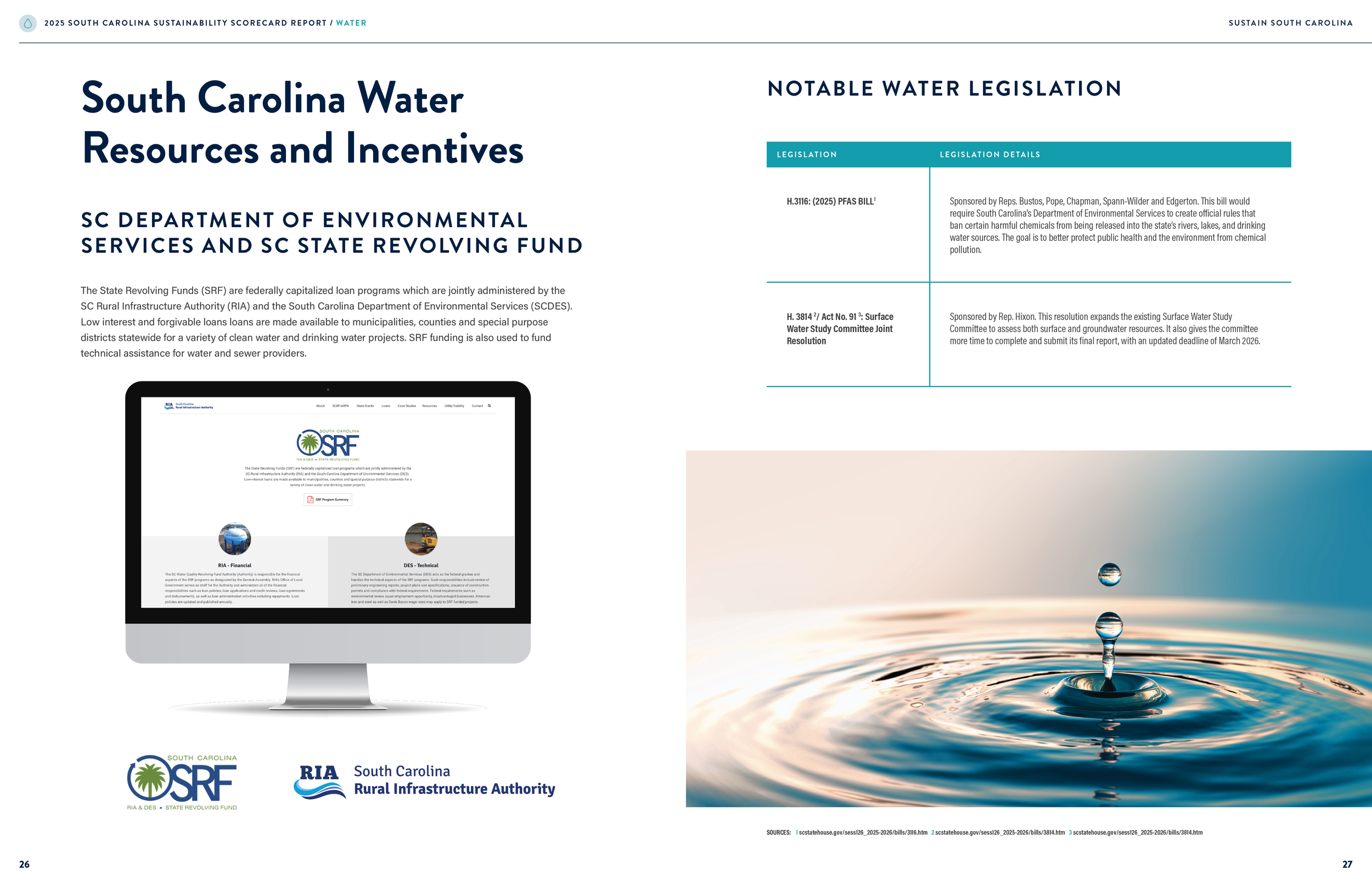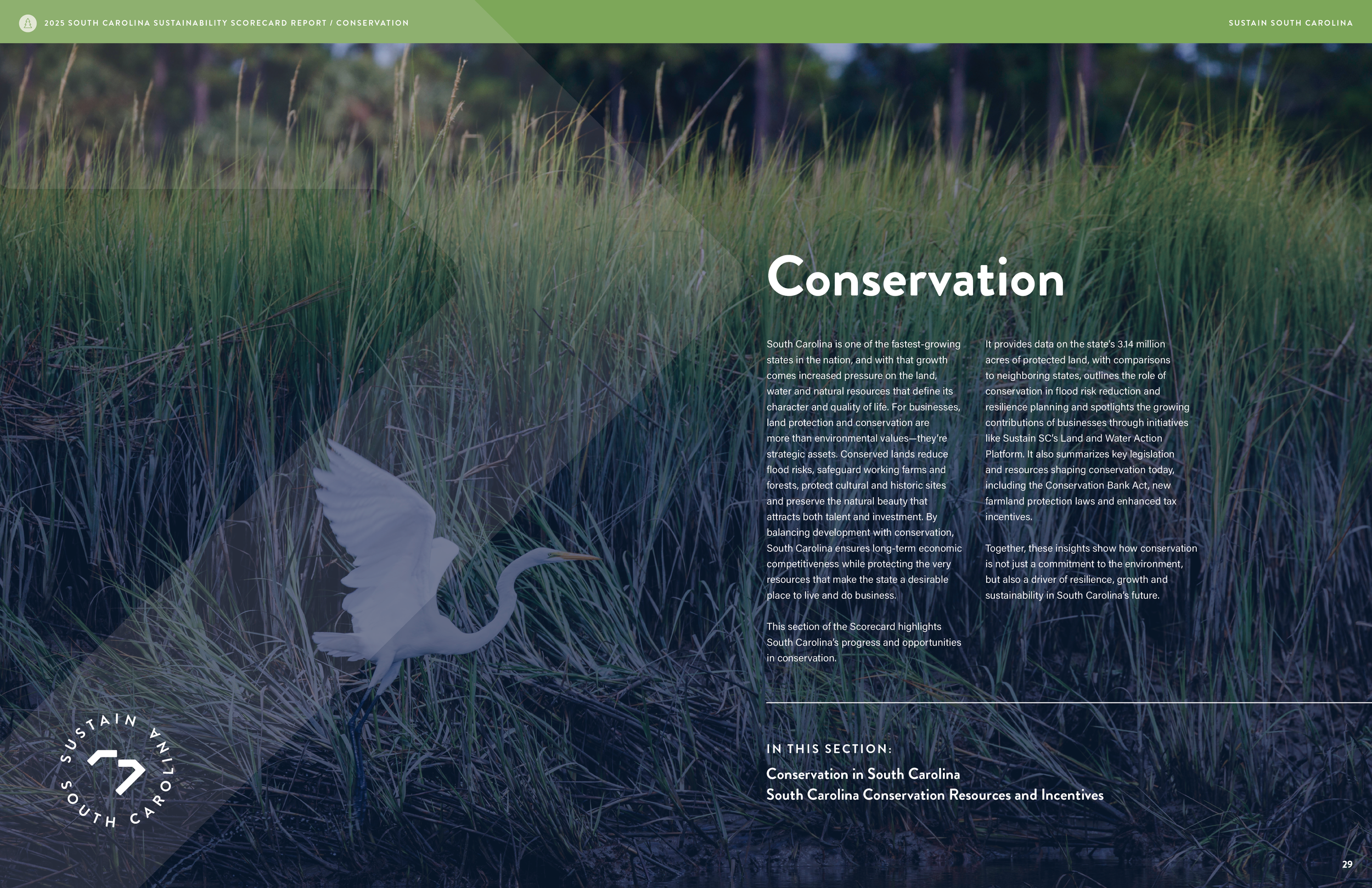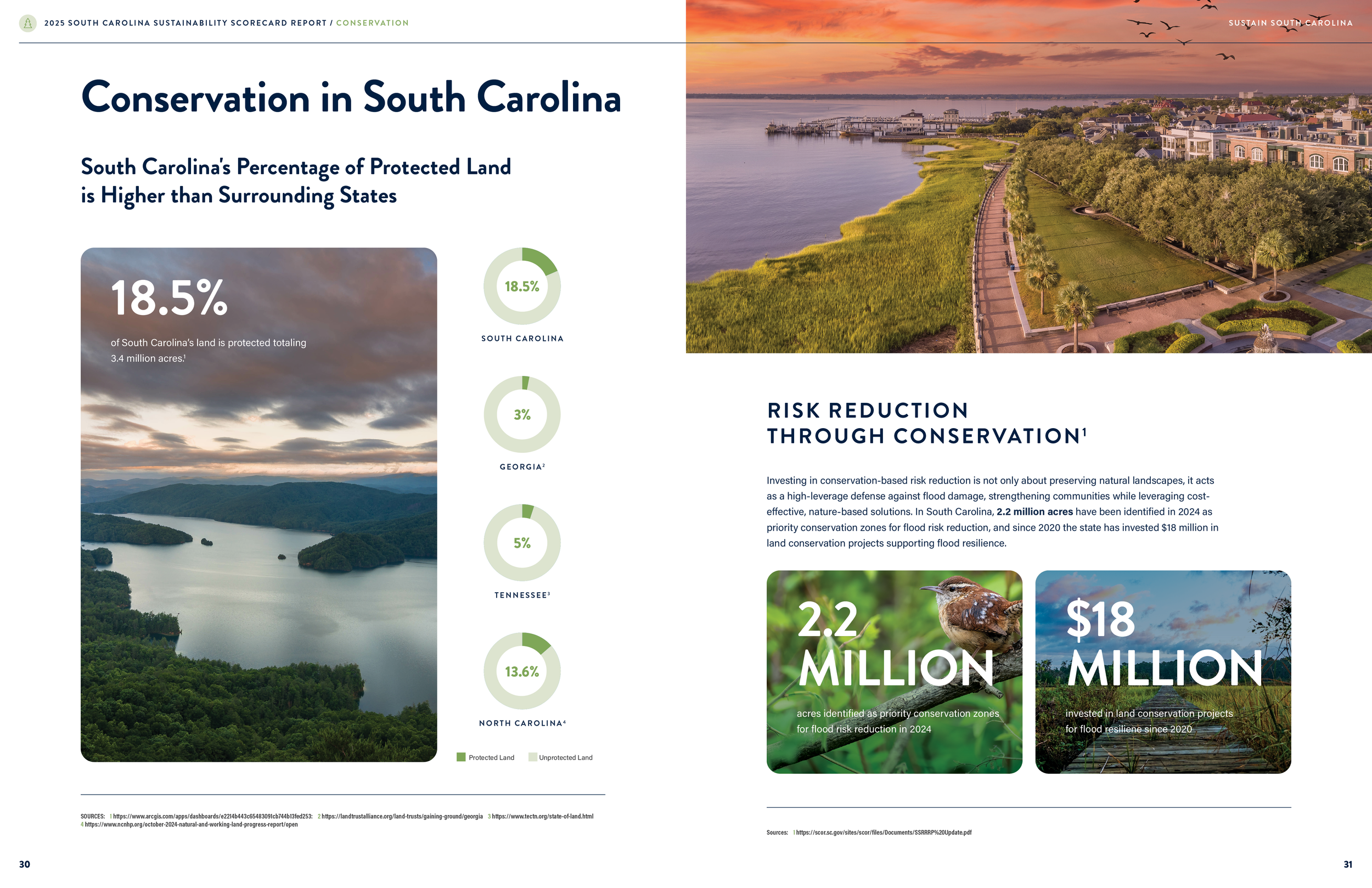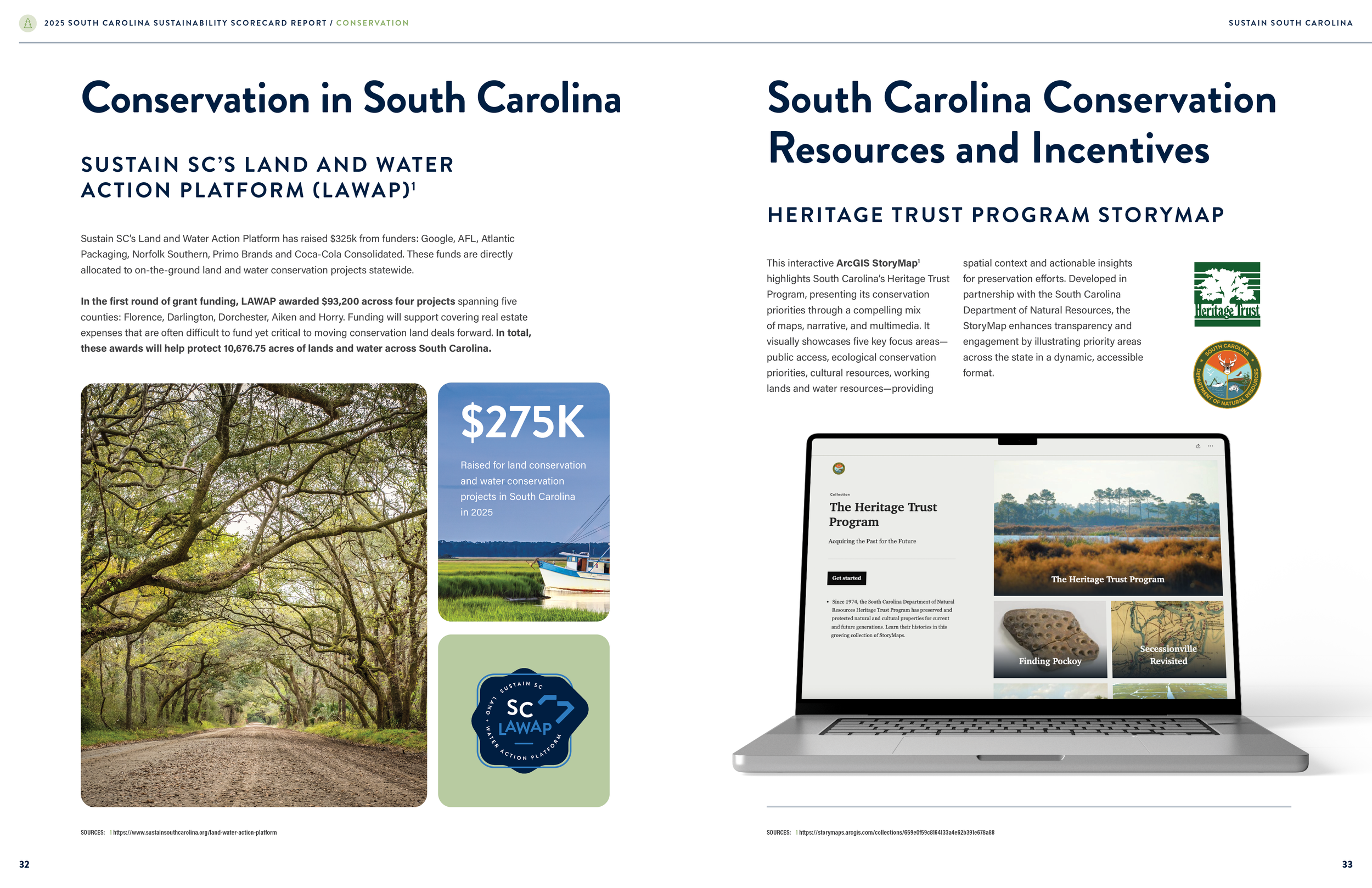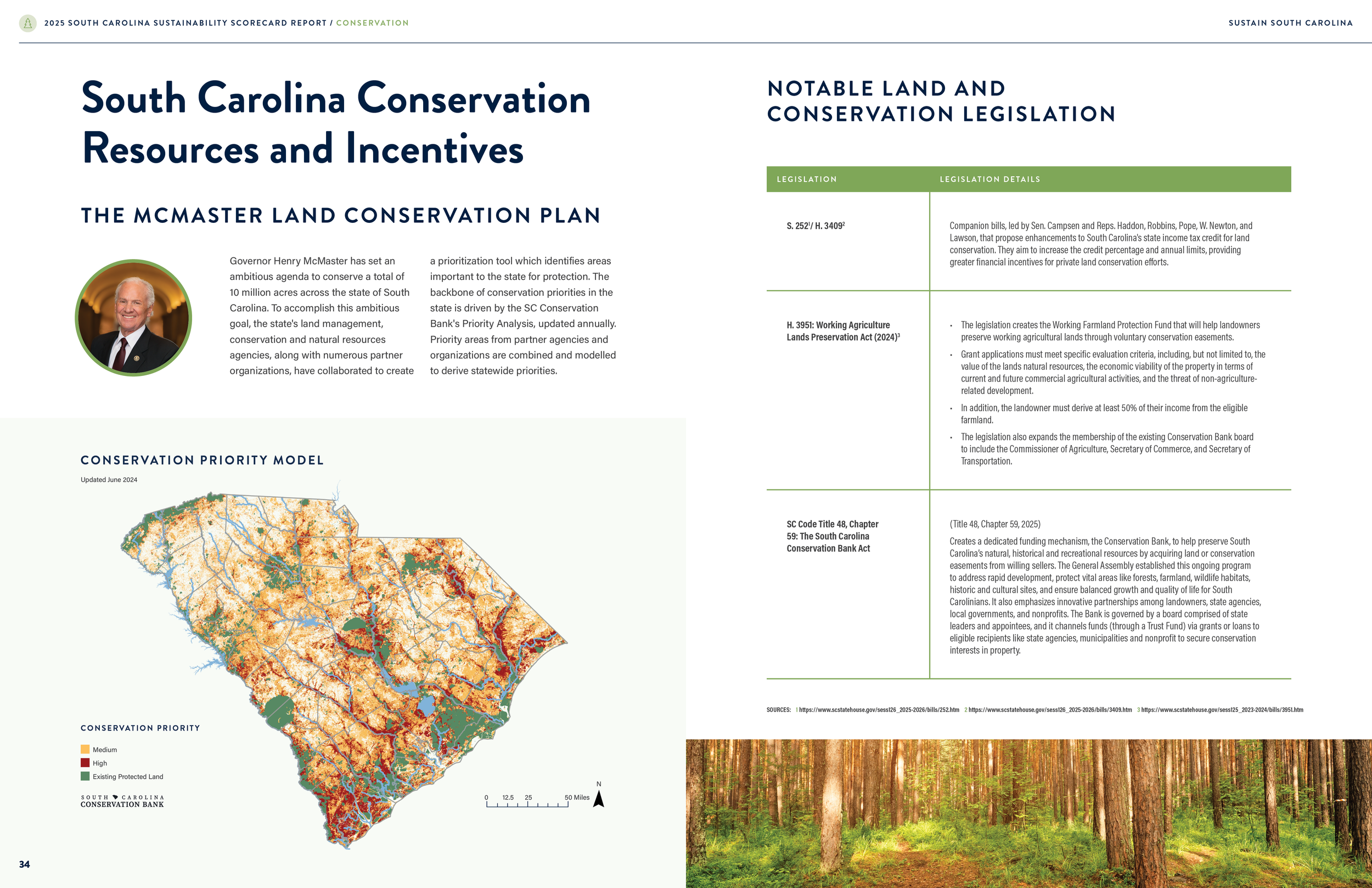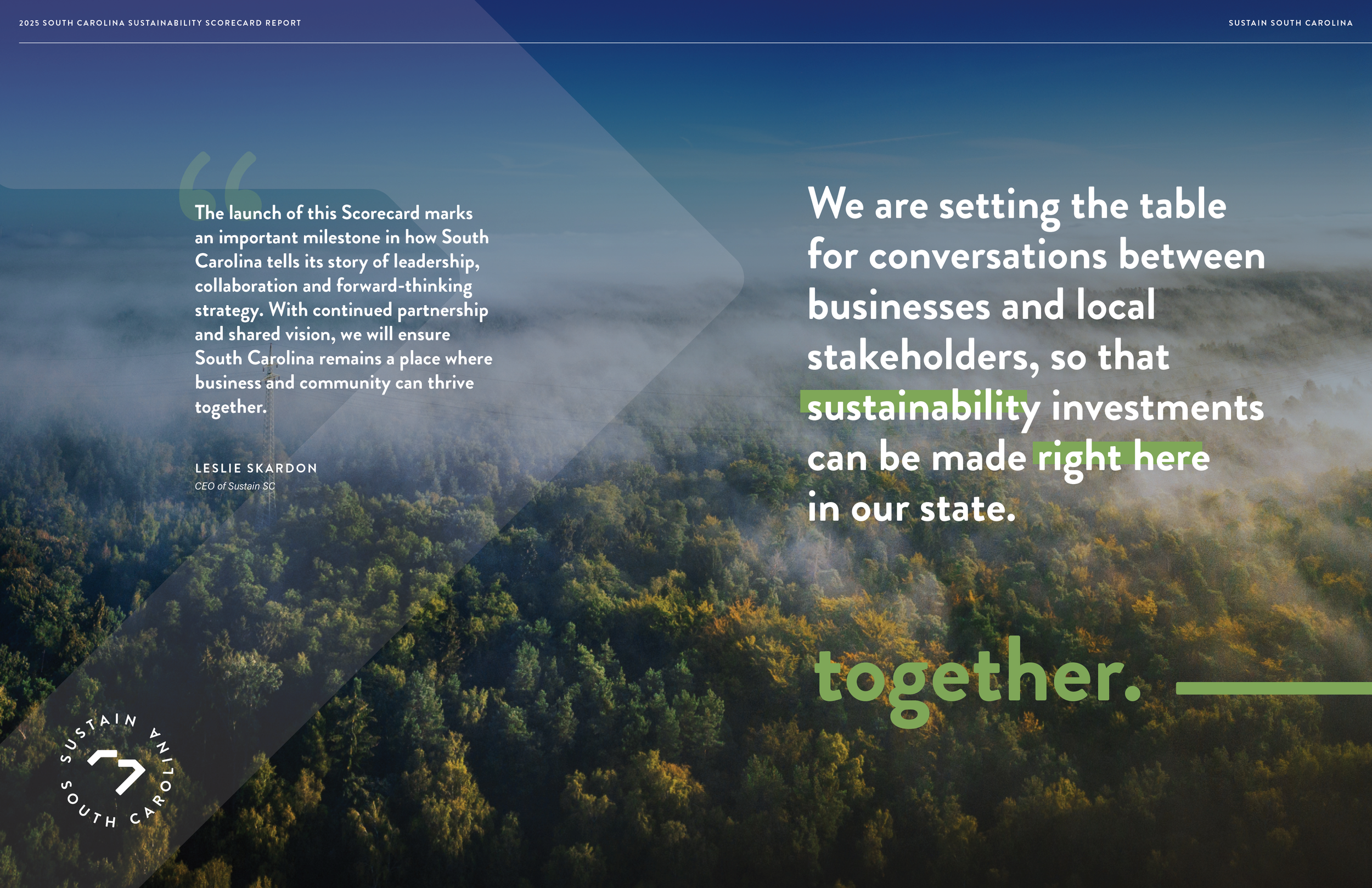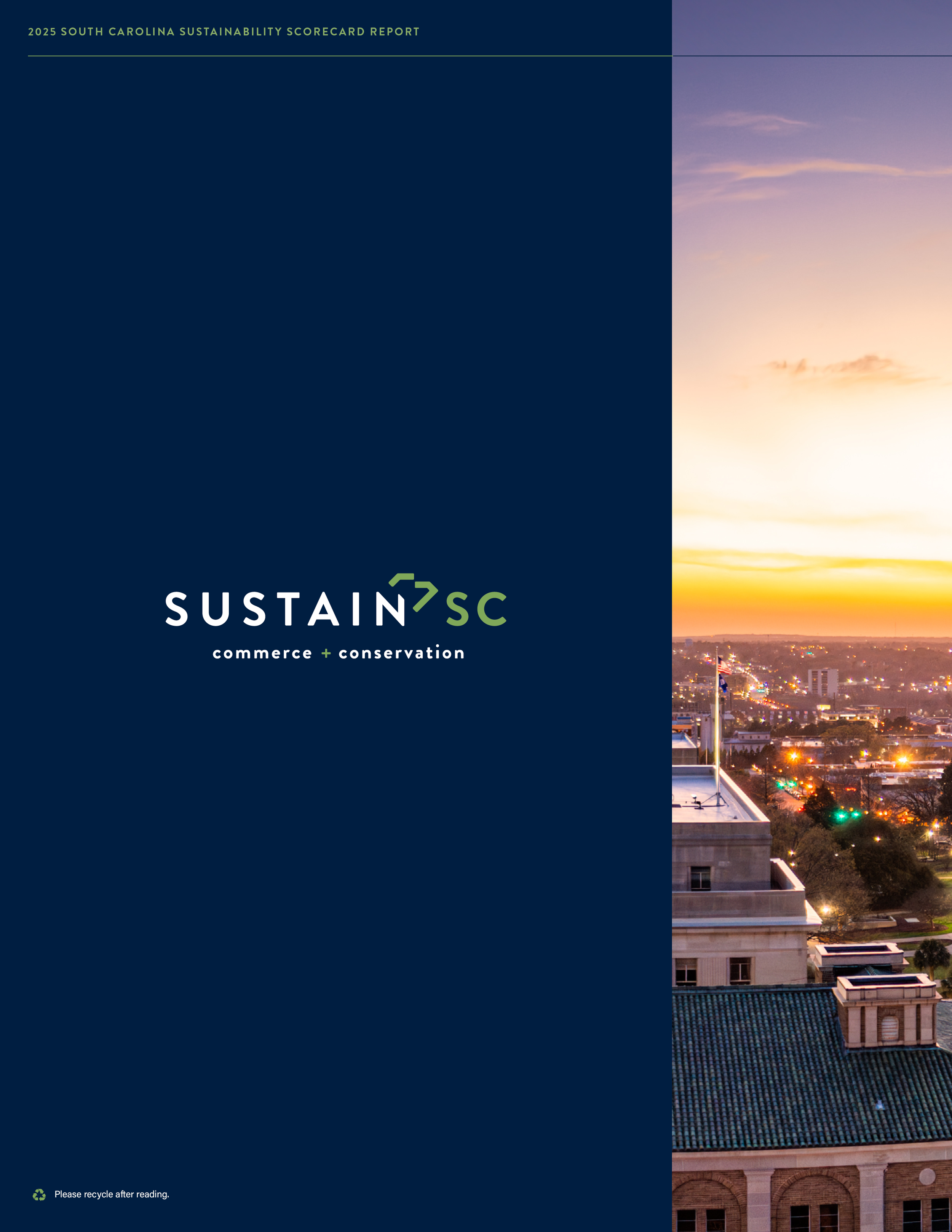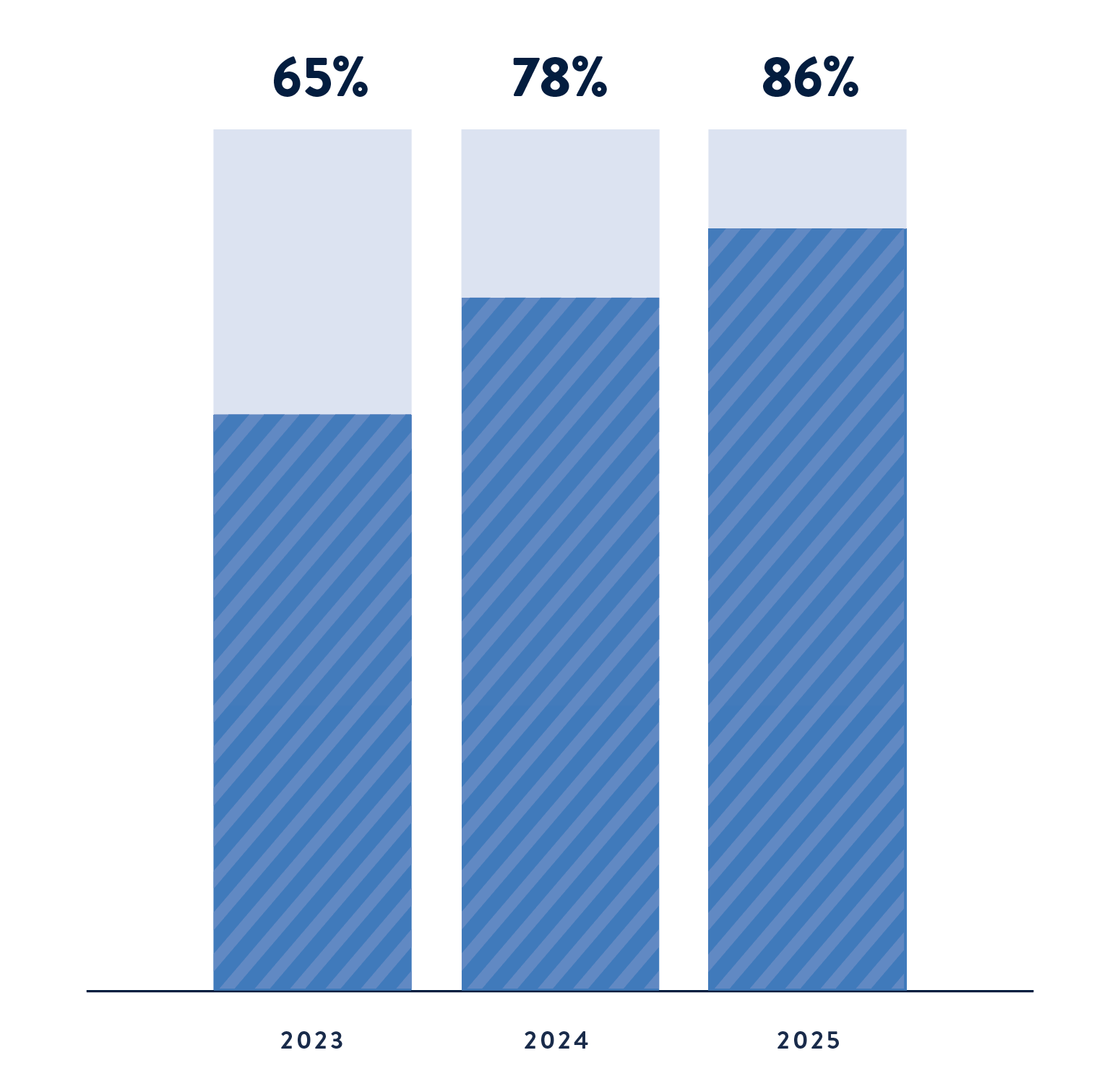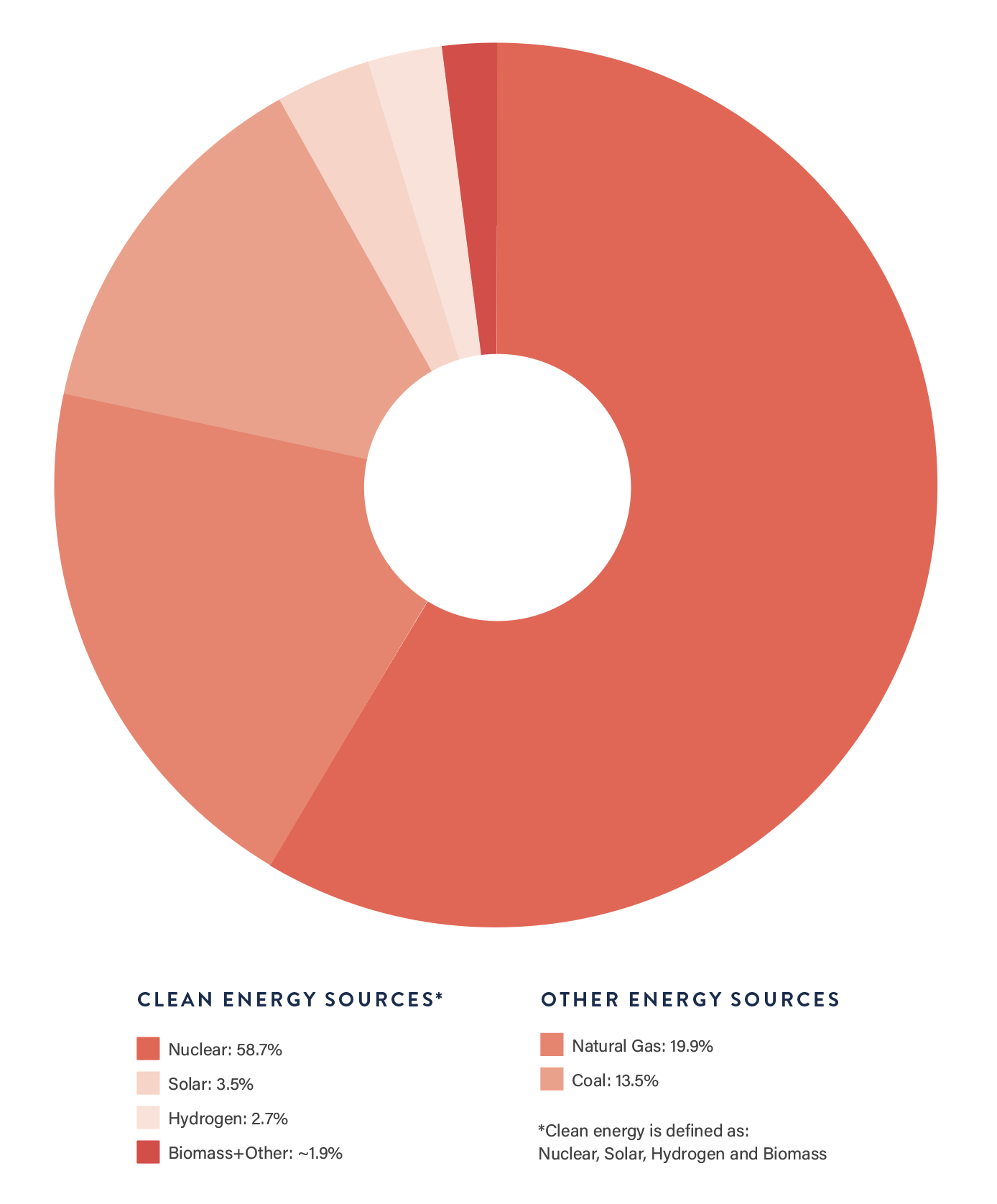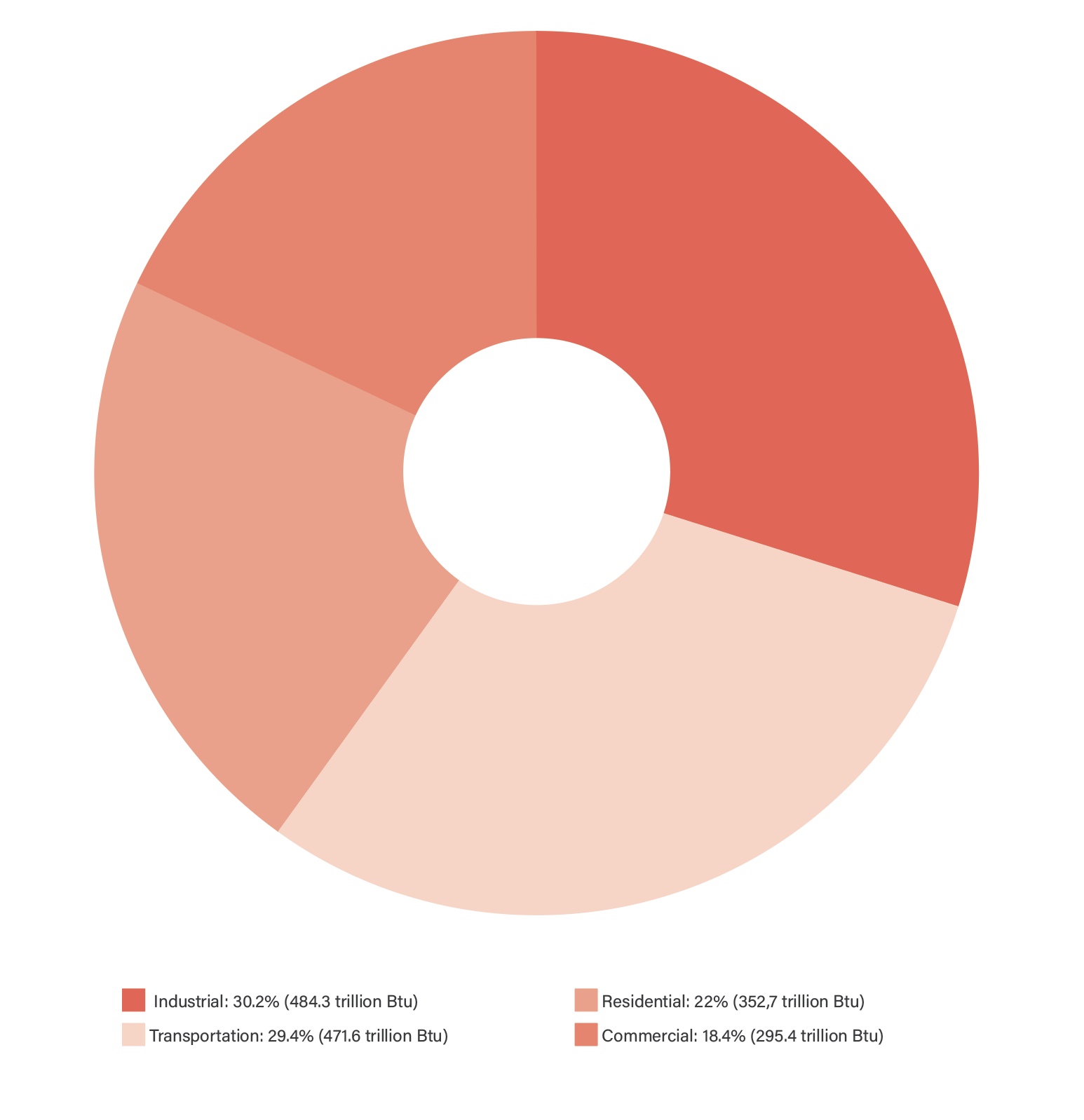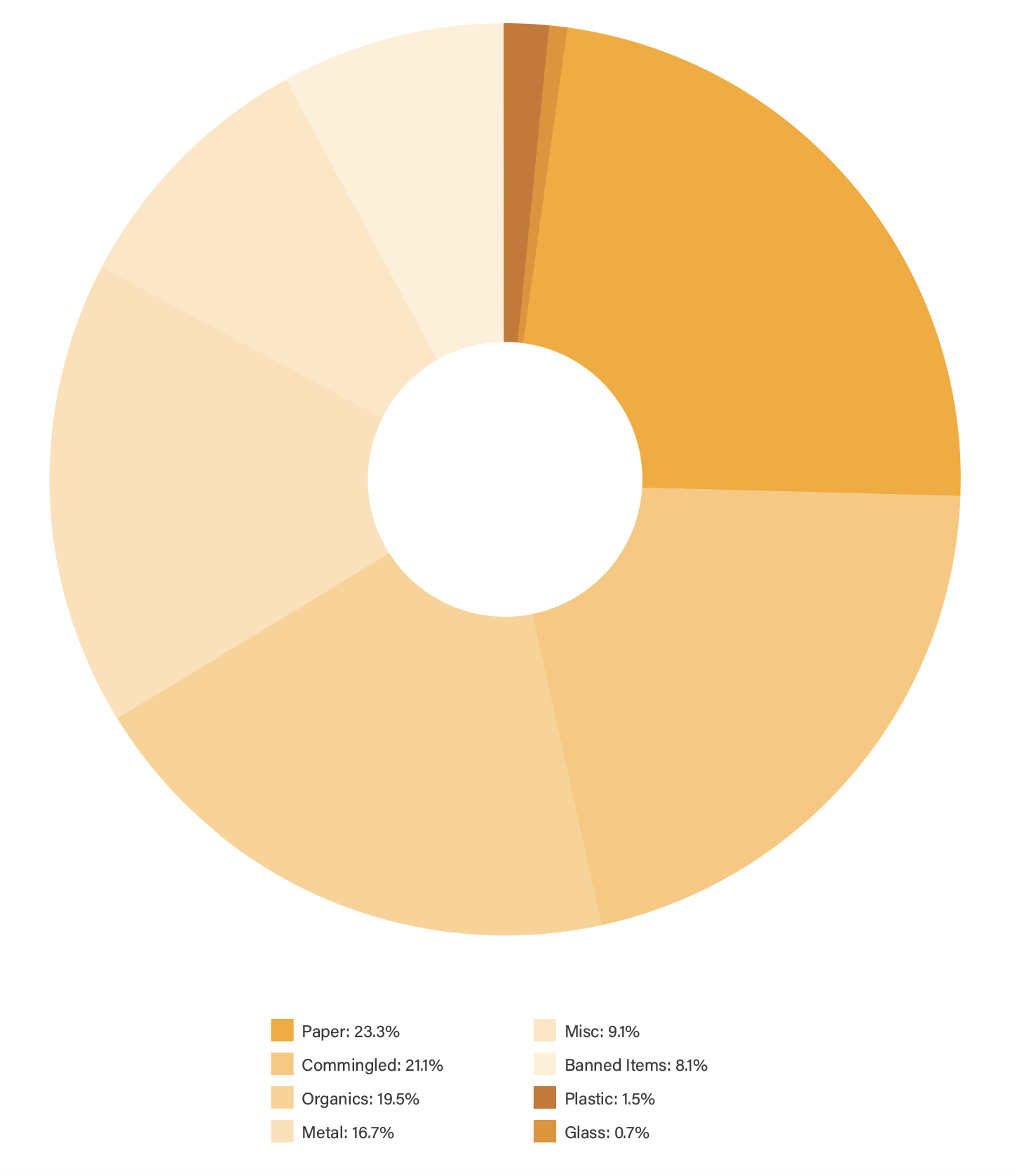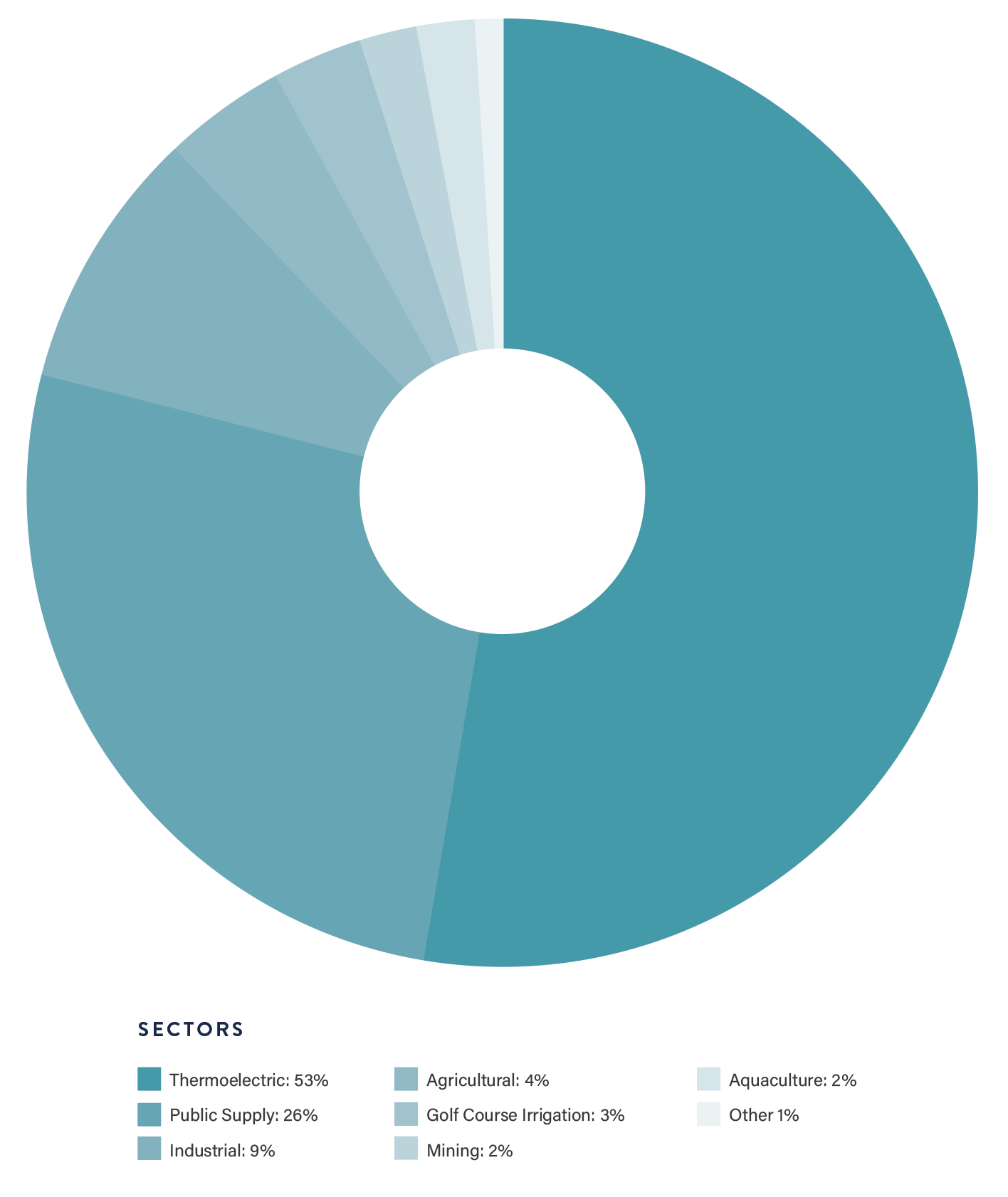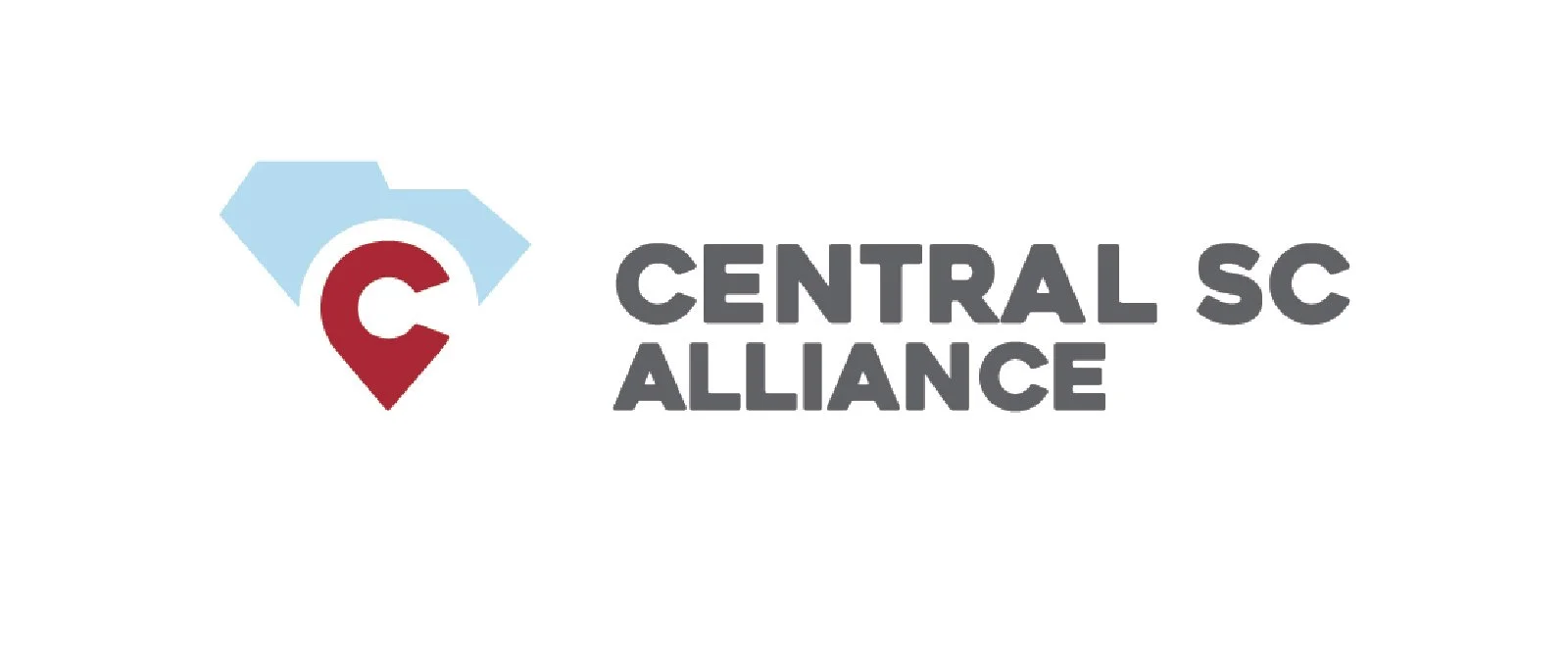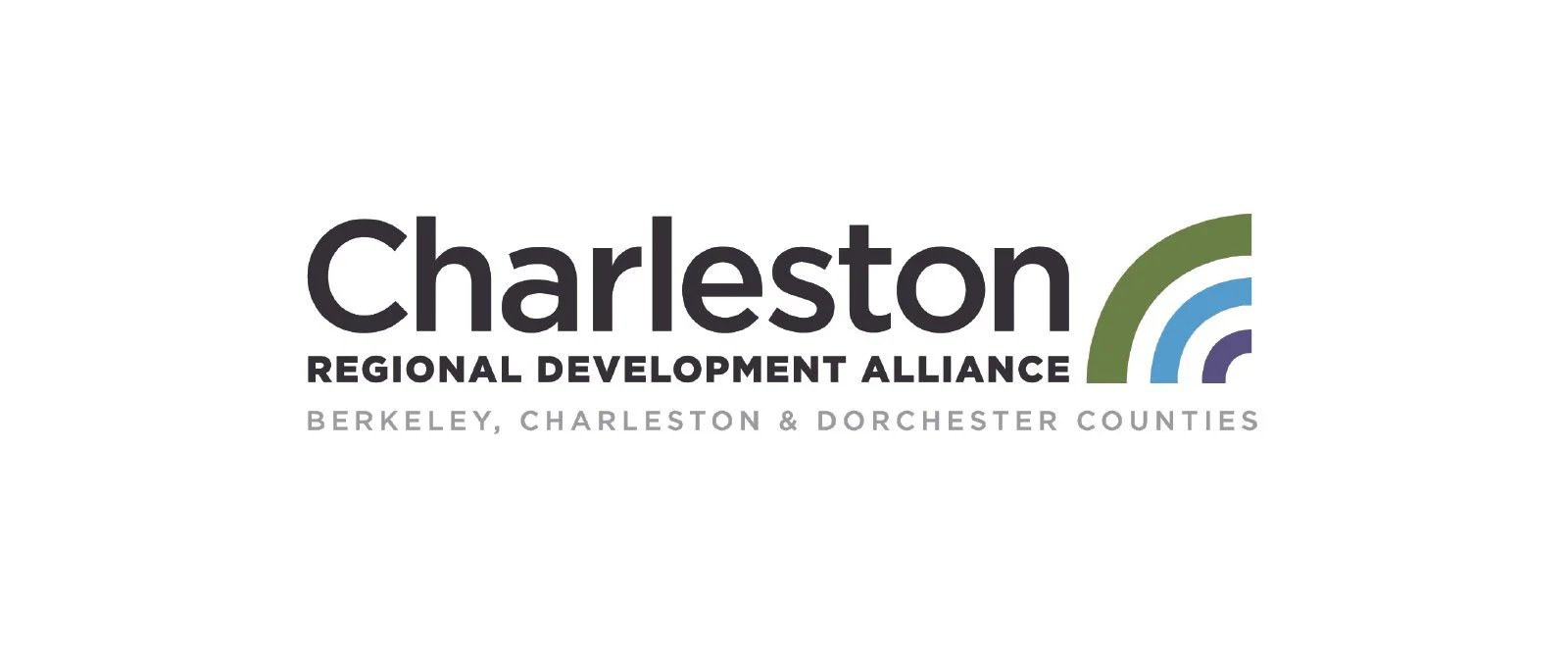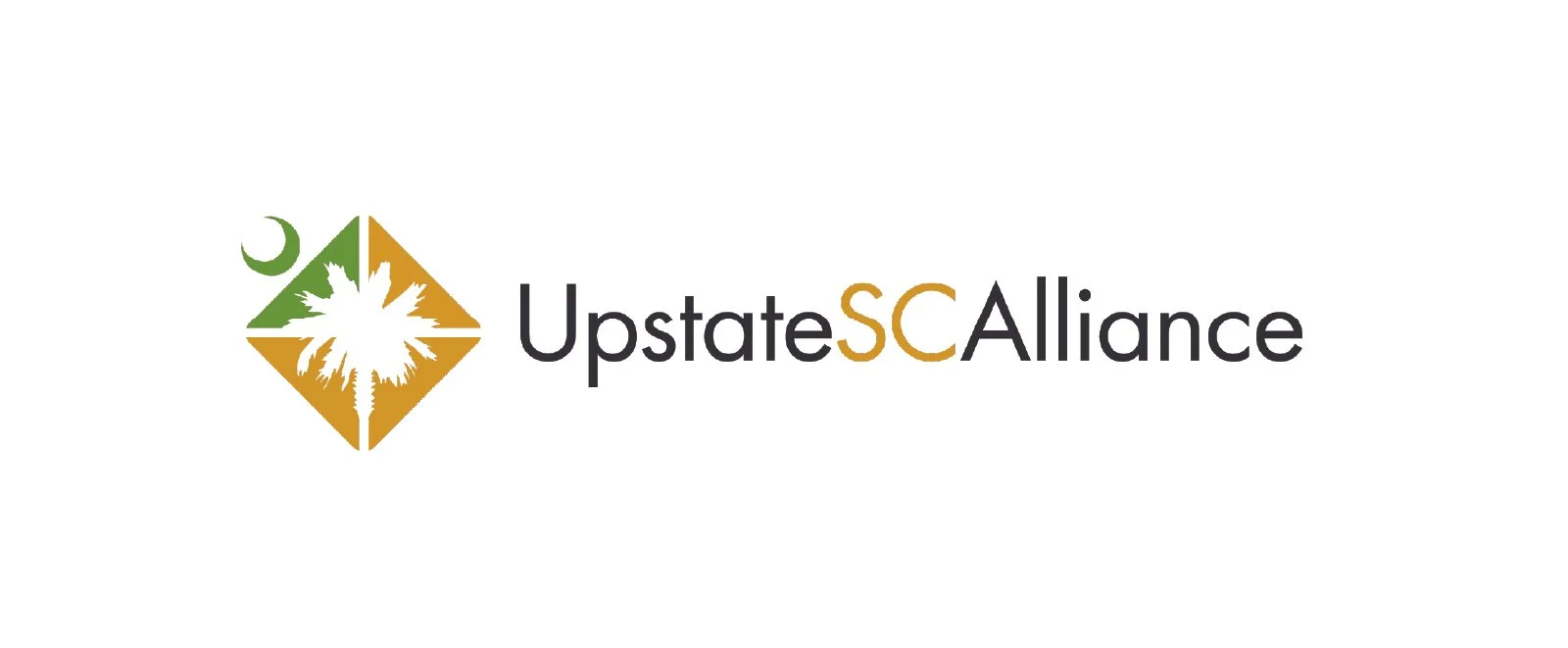South Carolina Sustainability Scorecard
The South Carolina Scorecard is a strategic initiative designed to collect and present statewide data across four key categories: Energy, Circularity, Water and Conservation.
Developed through Sustain SC’s Metrics and Reporting Accelerator, the Scorecard provides actionable insights for business leaders, policy makers and community stakeholders to make informed decisions that align economic development with environmental responsibility.
South Carolina’s Business Landscape
The Darla Moore School of Business conducted a study of the 54 largest employers in South Carolina as categorized by the South Carolina Department of Commerce to determine how many have publicly available sustainability goals and net-zero commitments
86%
of companies announced by the SC Department of Commerce in 2025 have publicly available sustainability goals
80%
of the largest corporate employers* in SC have published a sustainability report in the last two years
67%
of the largest corporate employers* in SC havemade a public Net-Zero Commitments
Energy
Clean Energy Share
62%
of SC energy generated is derived from clean energy sources*
South Carolina’s clean energy share is higher than surrounding states
47% in Georgia
47% in North Carolina
50% in Tennessee
Energy Generation Mix
Energy Consumption
BTu total in 2023
1,604 T
BTu per-capita in 2023
307 M
Energy Consumption by Sector
Circularity
Recycling + Waste
21.2%
2024 SC Recycling Rate
$6.63B
of Capital Investment in the SC Recycling Industry since 2021
2024 MSW Disposal Rate (lbs/person/day)
3.8 lbs
2024 MSW Generation Rate (lbs/person/day)
4.8 lbs
% of MSW Commodities Recycled by Weight
Water
Water Use + Infrastructure
Gallons of Water Used Annually in SC
5.9T
In Stormwater Infrastructure grants awarded in 2024
$197M
Water Use by Sector
Conservation
Land Protection
of SC Land is protected
18.5%
3.4 M
Acres Protected
South Carolina’s percentage of protected land is higher than surrounding states
3% in Georgia
5% in Tennessee
13.6% in North Carolina
Risk Reduction Through Conservation
2.2 MILLION
Acres identified as priority conservation zones for flood risk reduction in 2024
$18 MILLION
invested in land conservation projects for flood resilience since 2020
